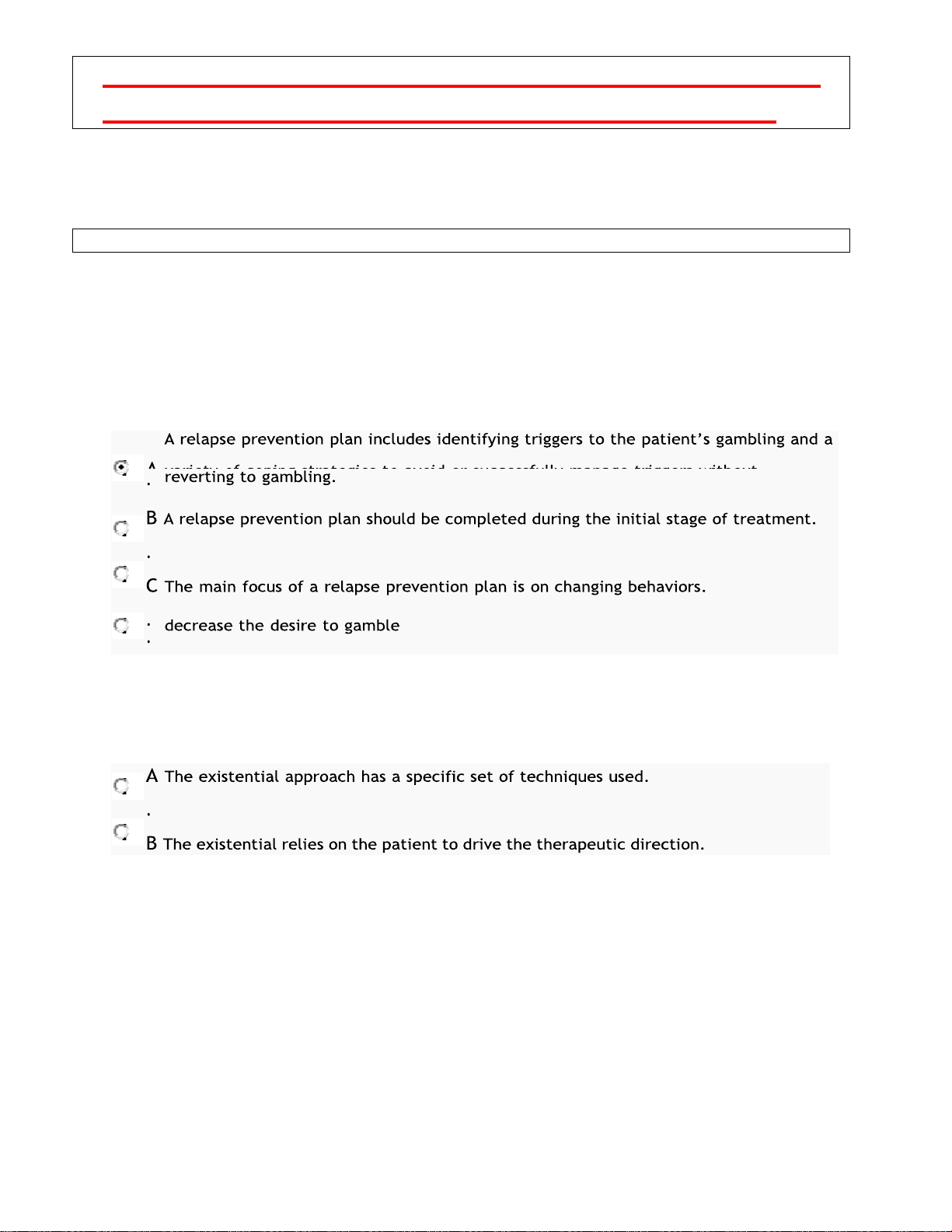
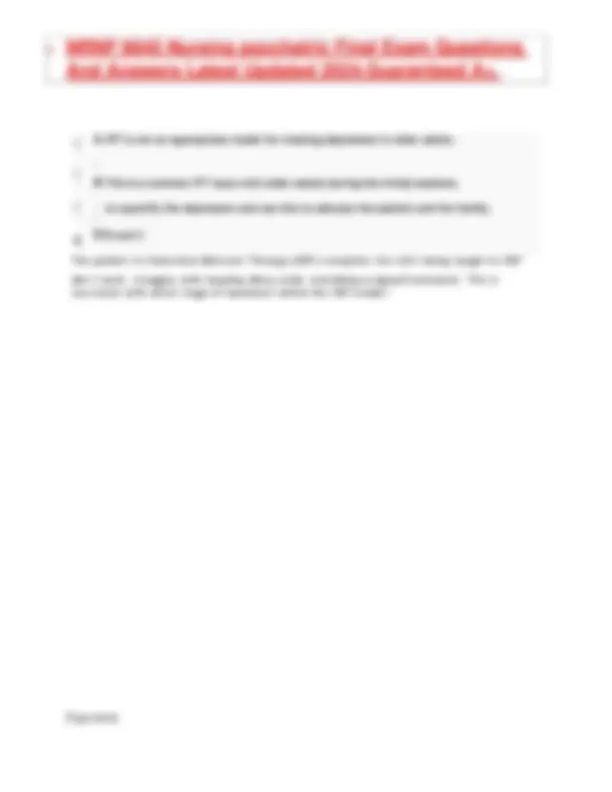
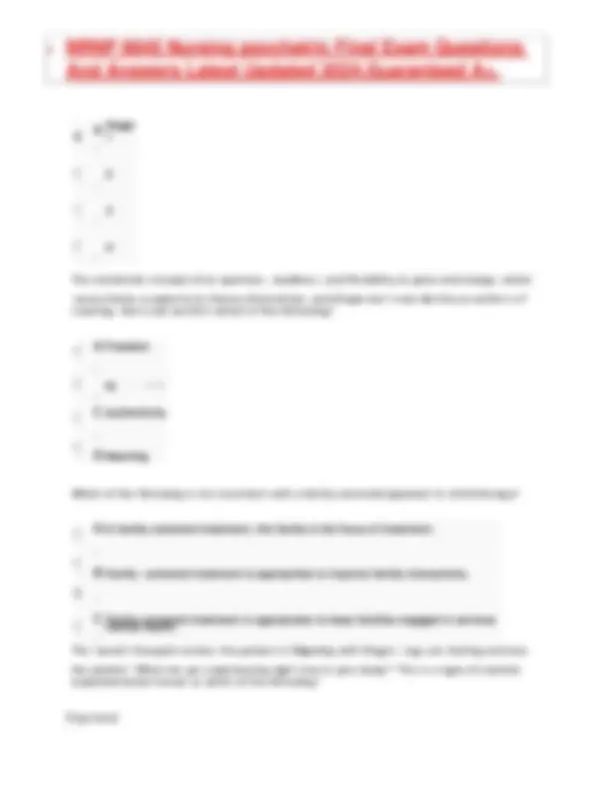
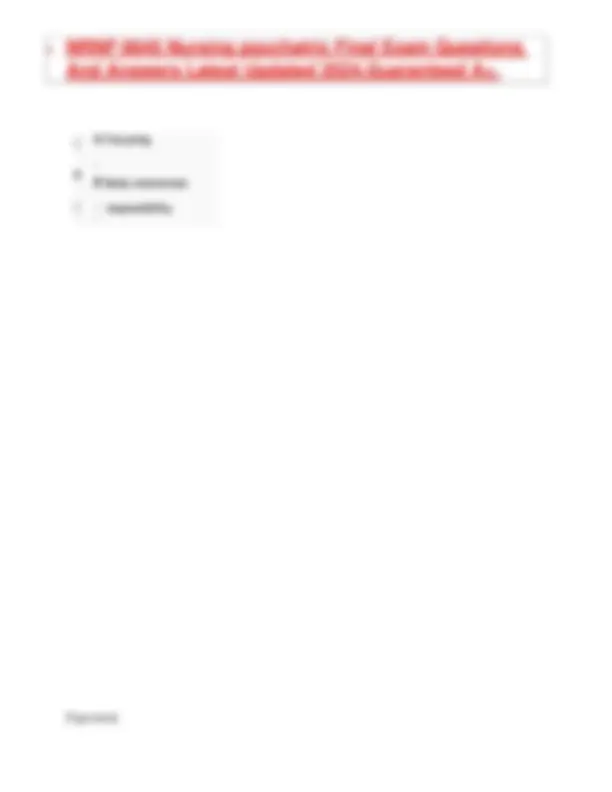
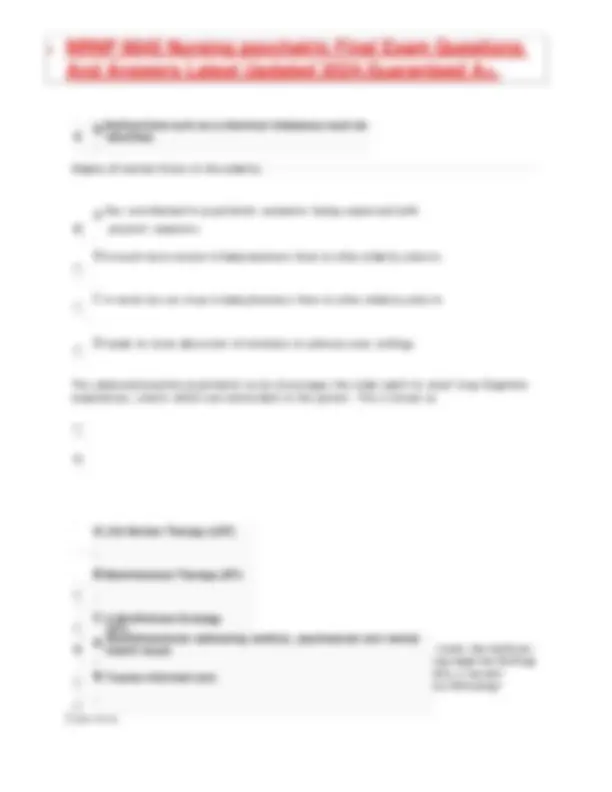
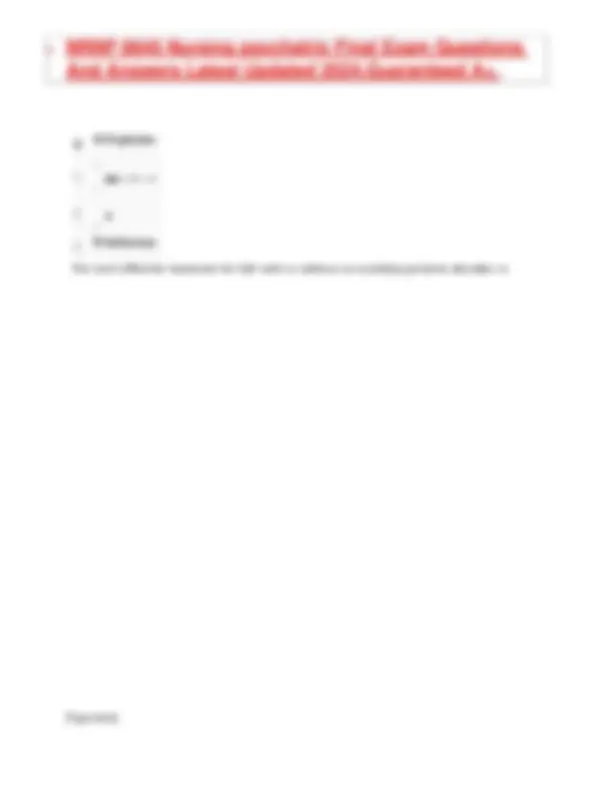
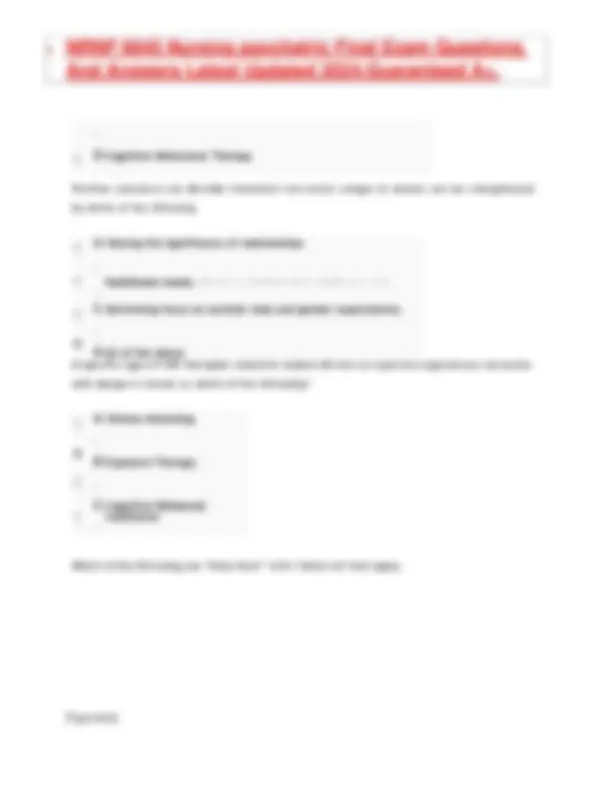
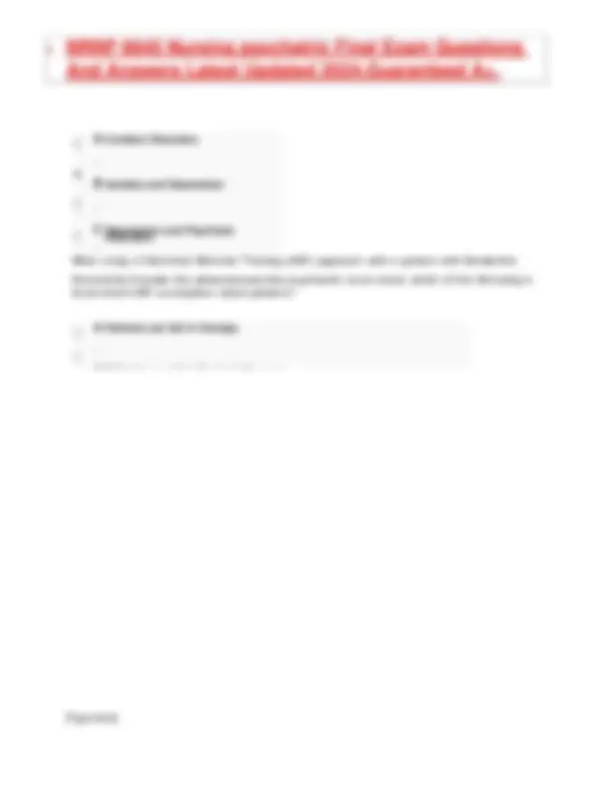
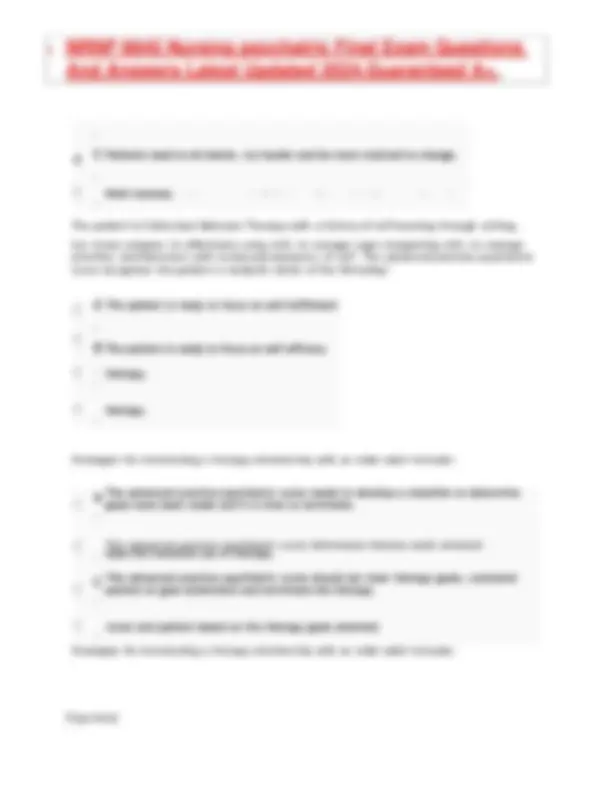
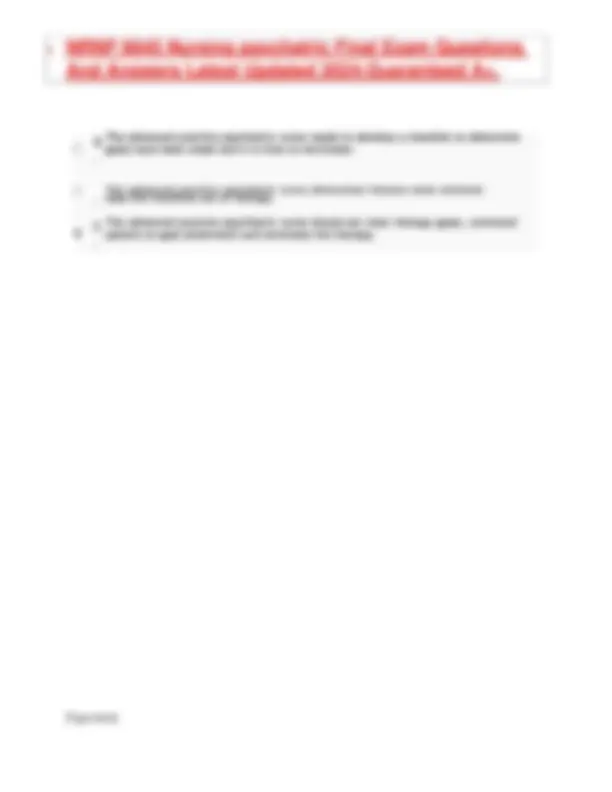
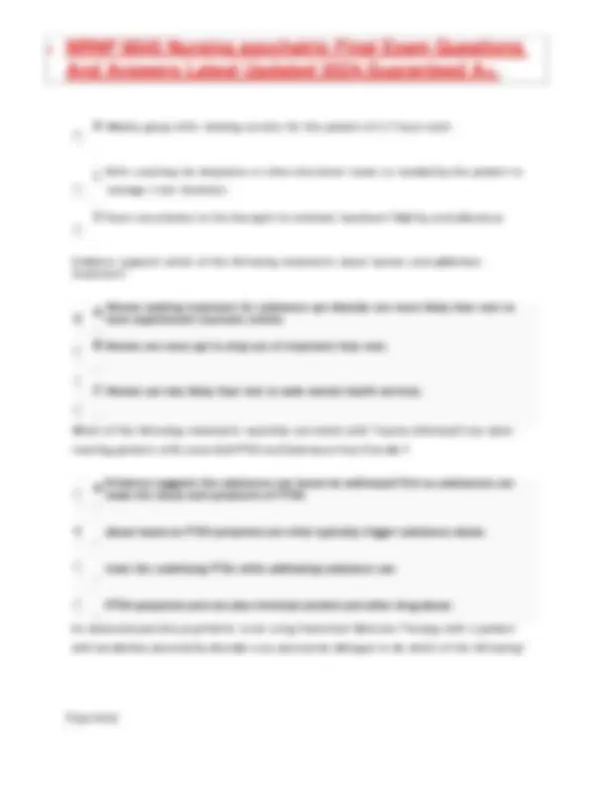
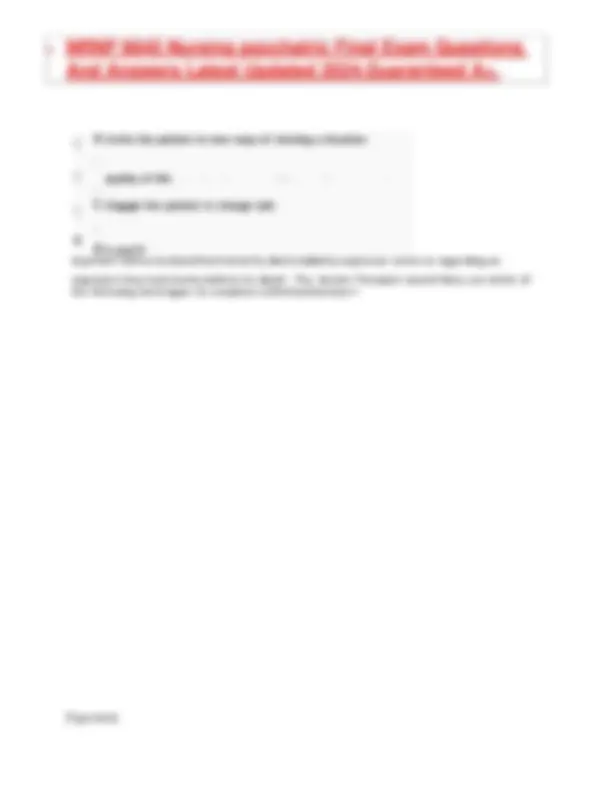
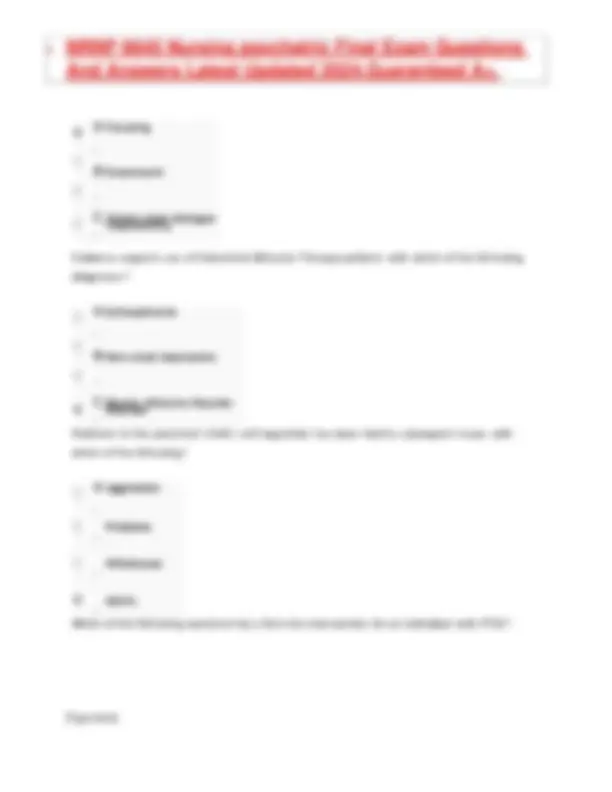
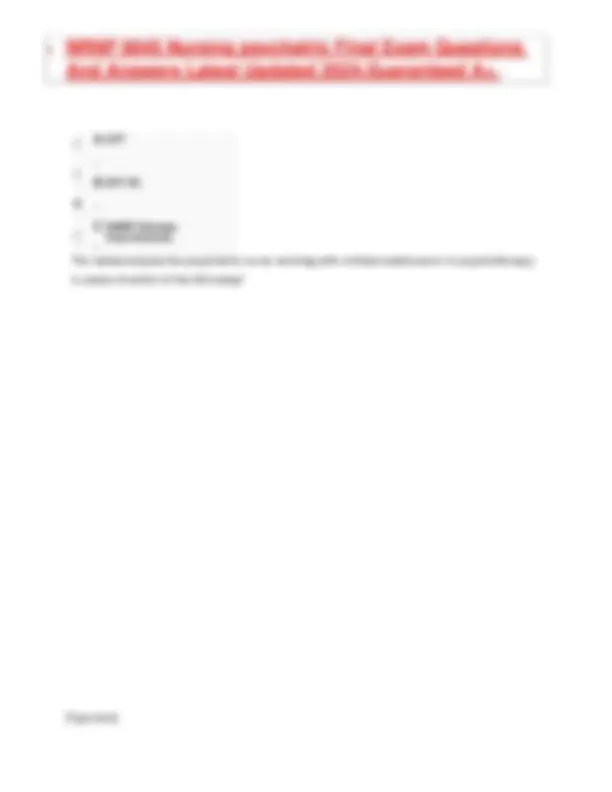
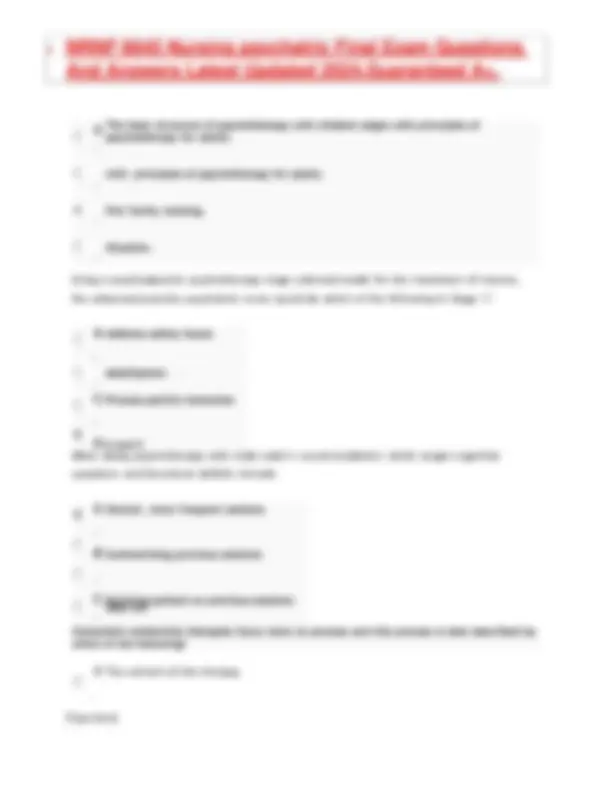
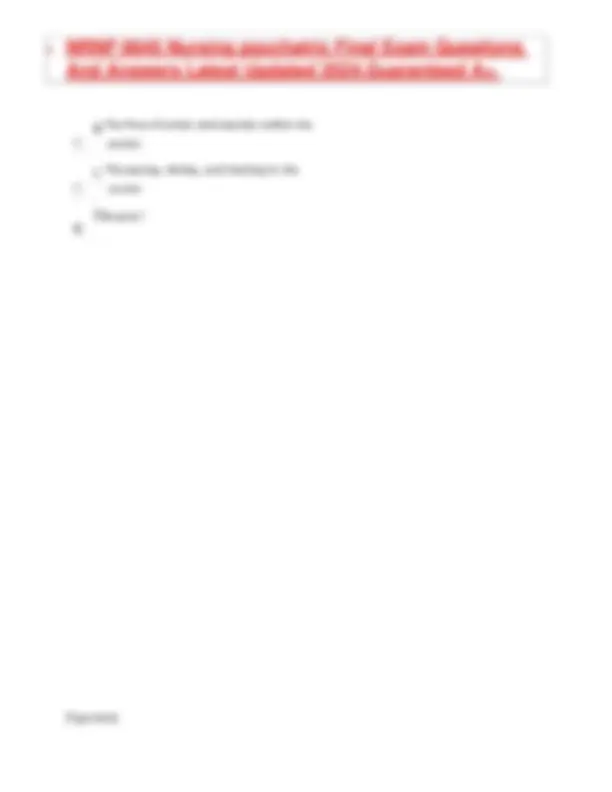
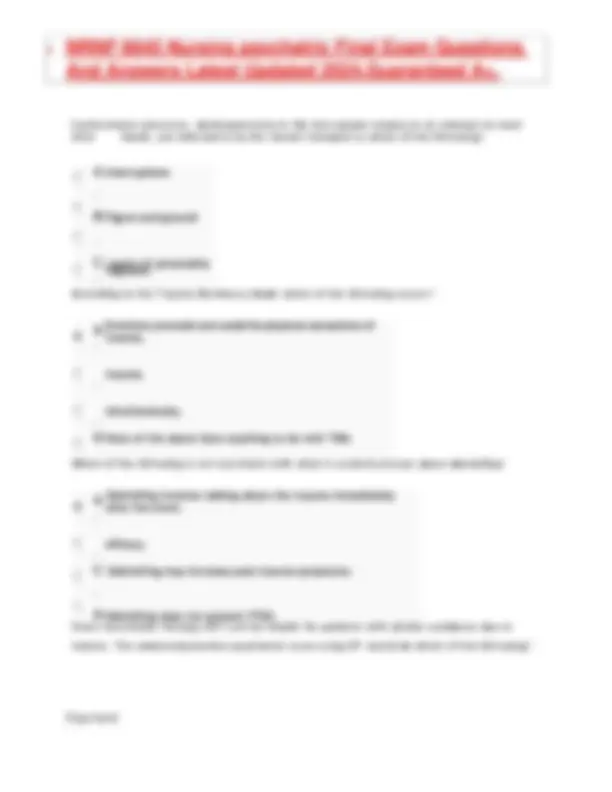
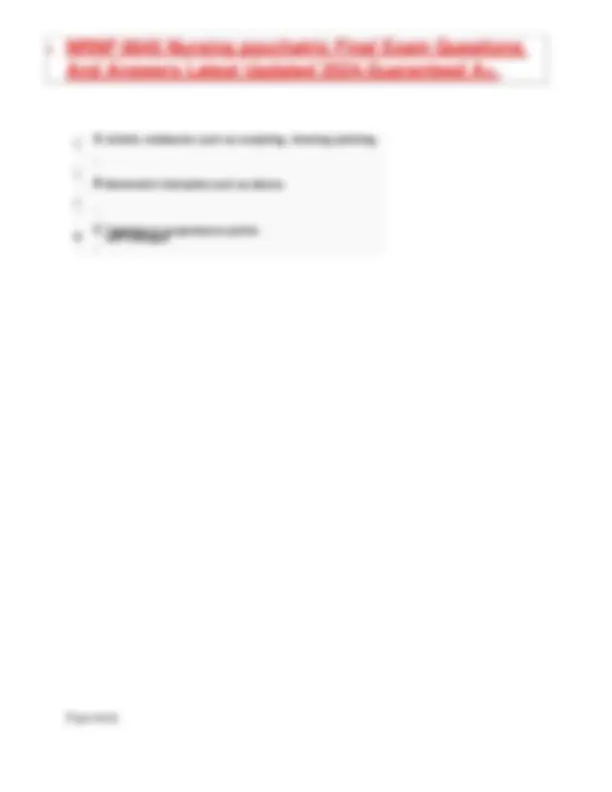
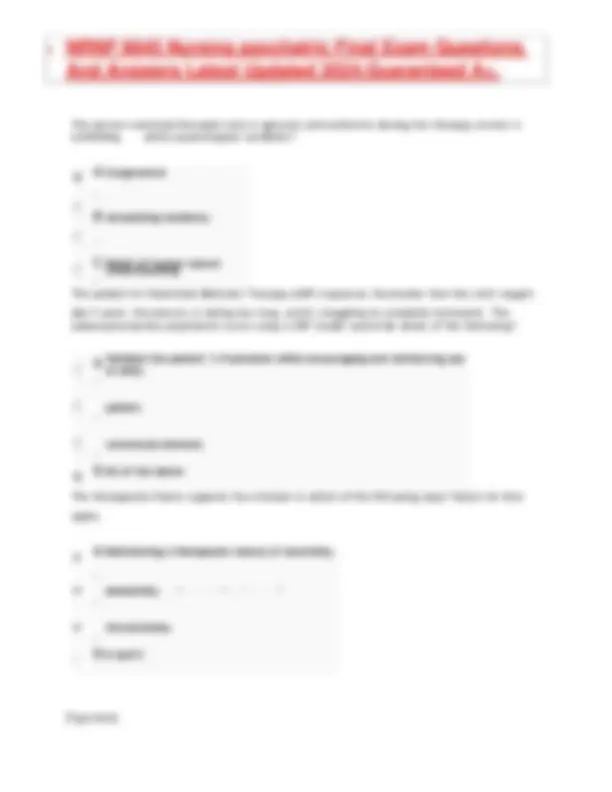
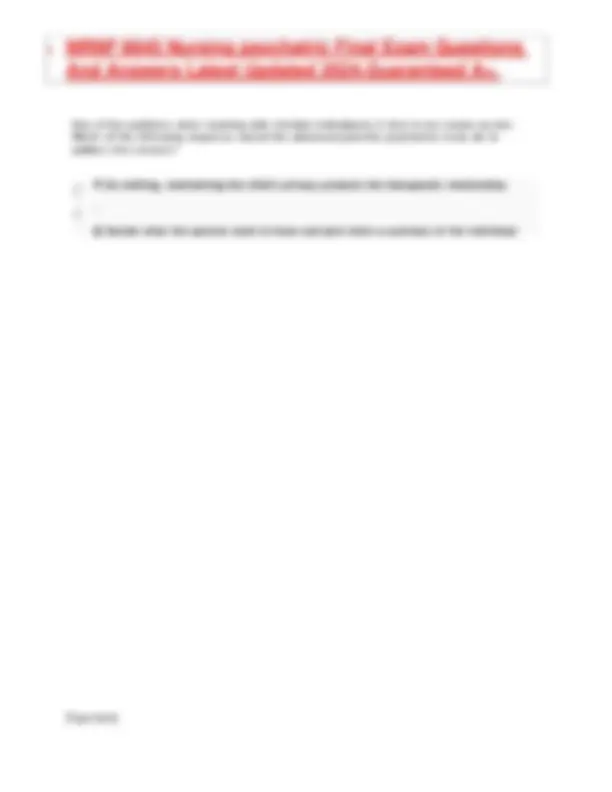
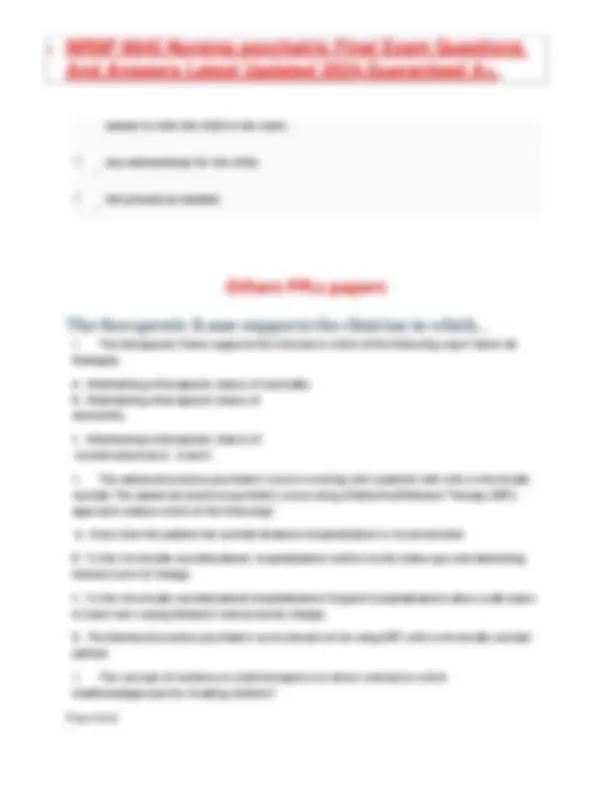
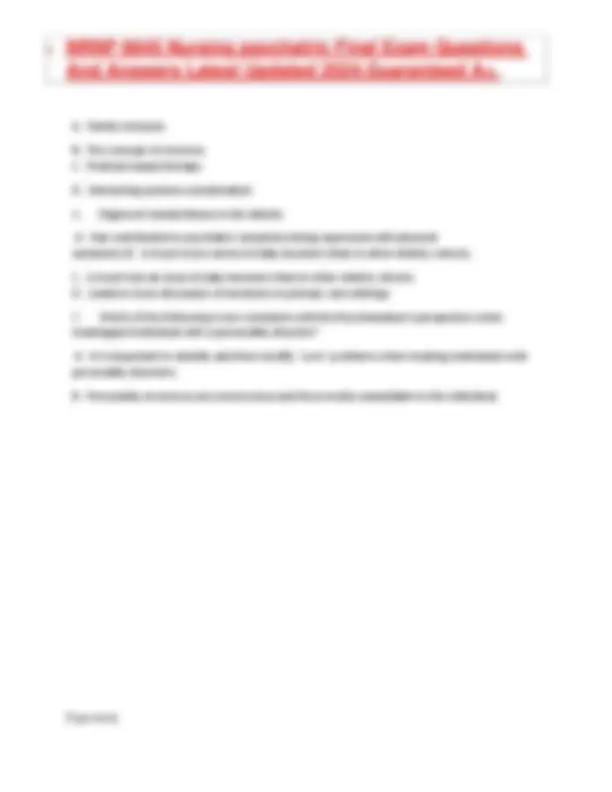
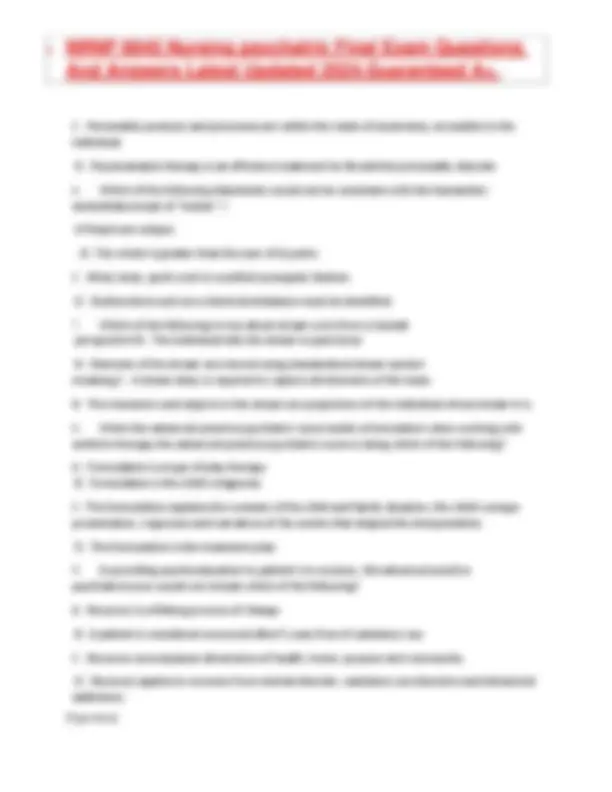
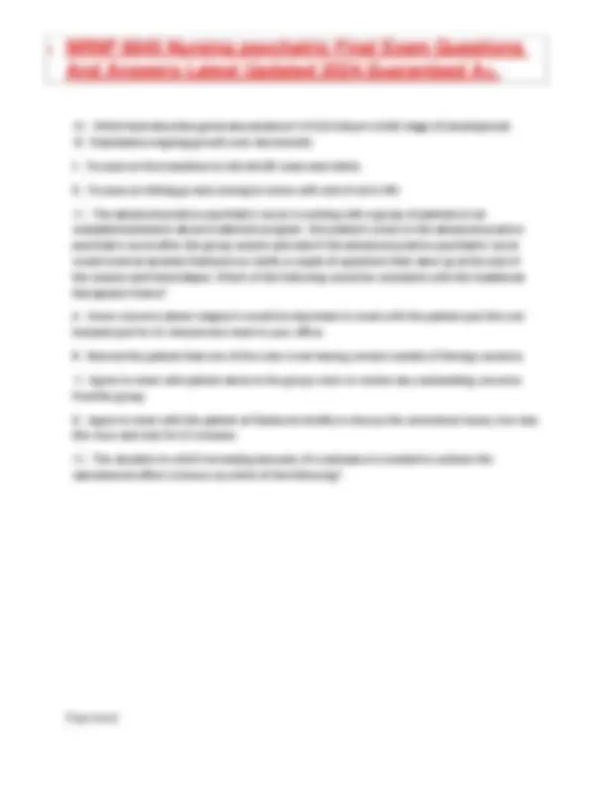
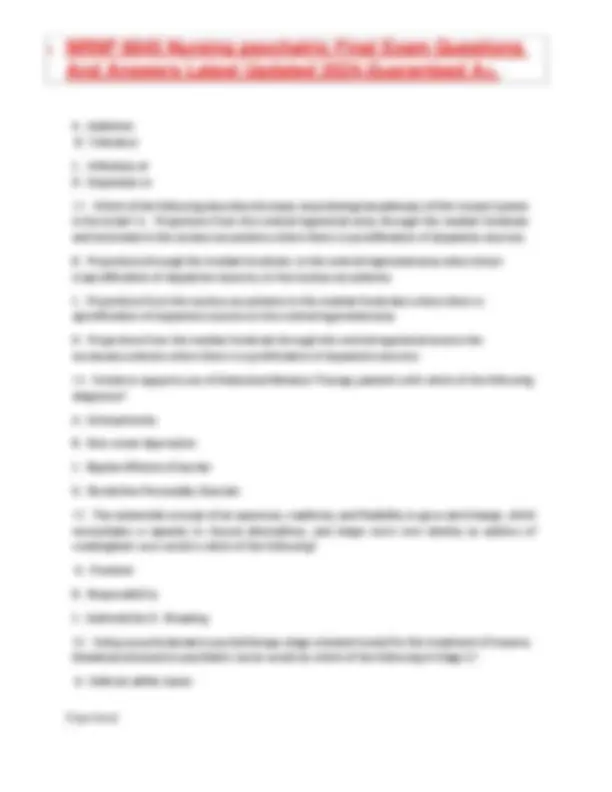
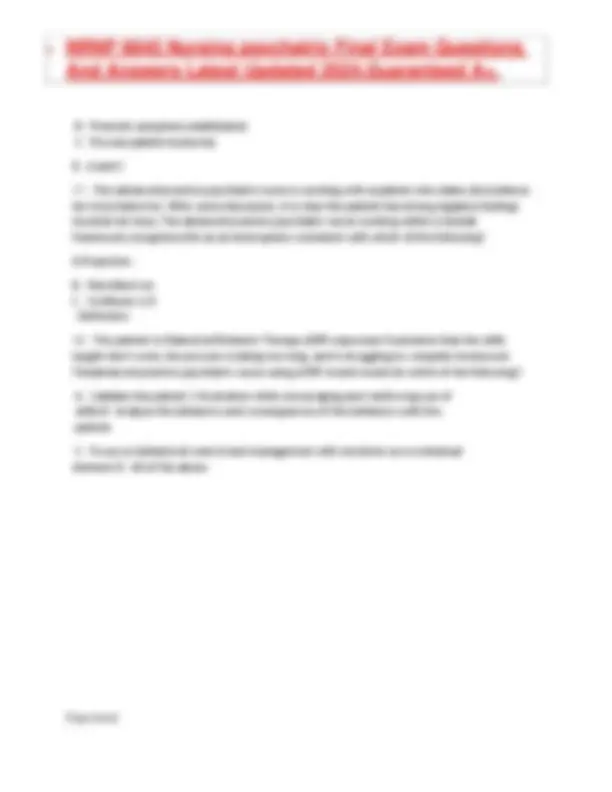
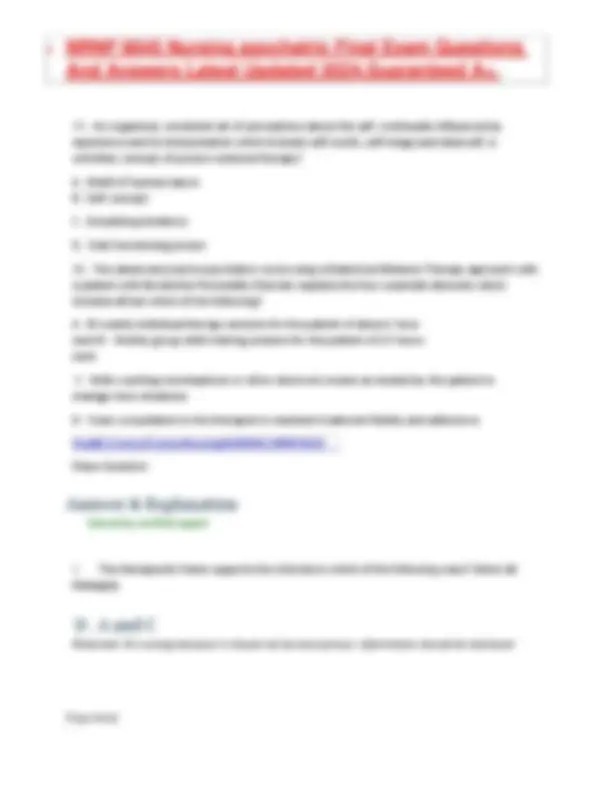
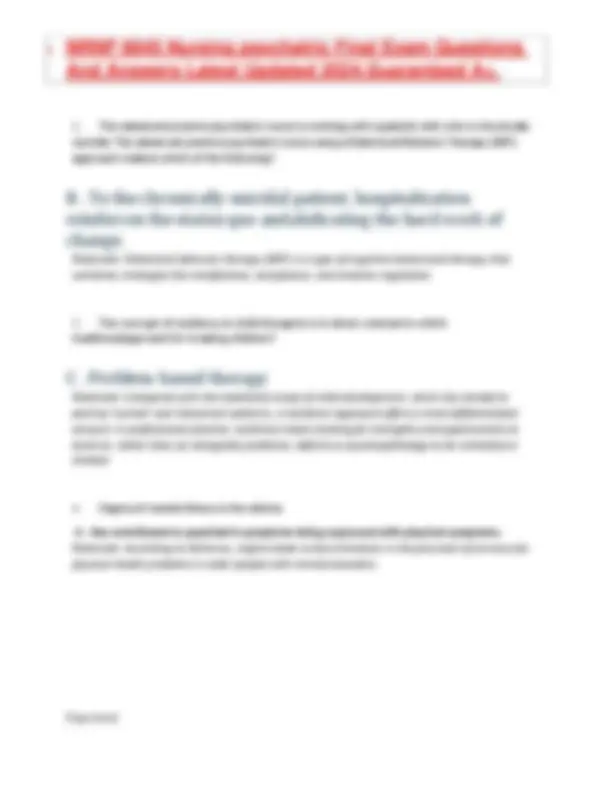
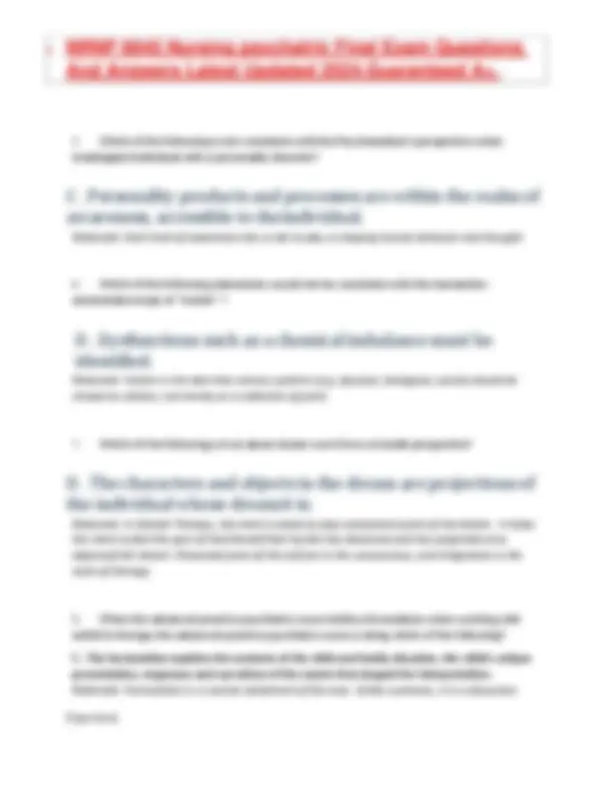
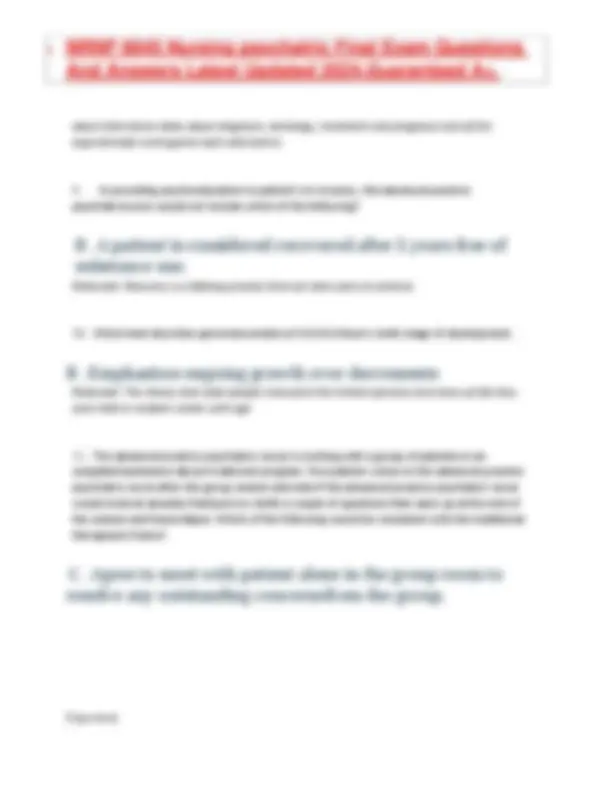
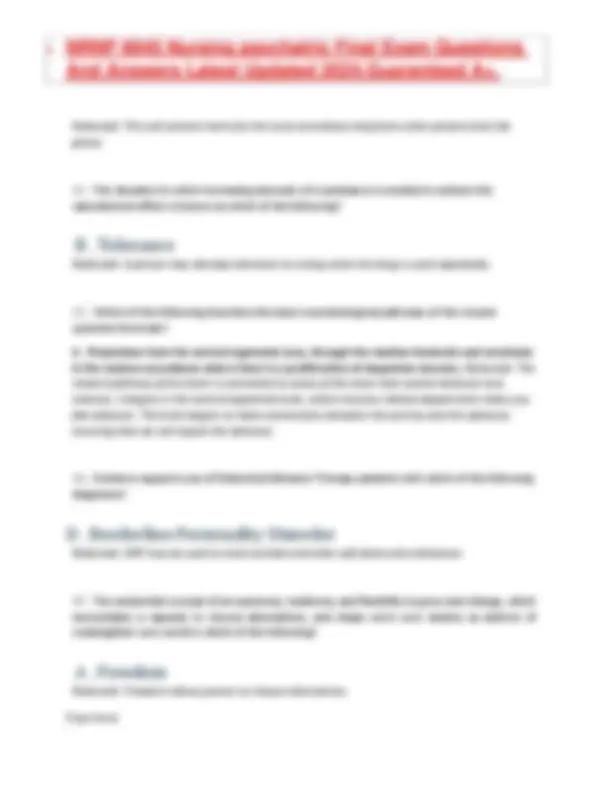
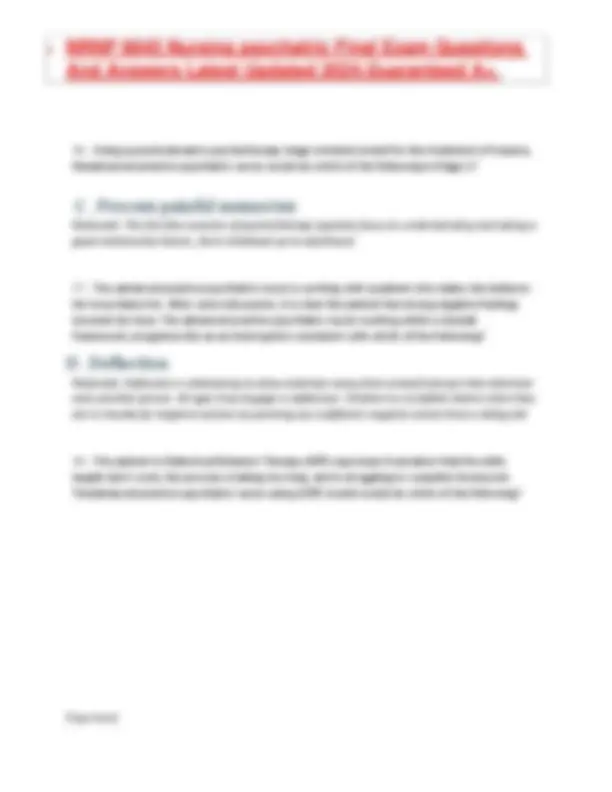
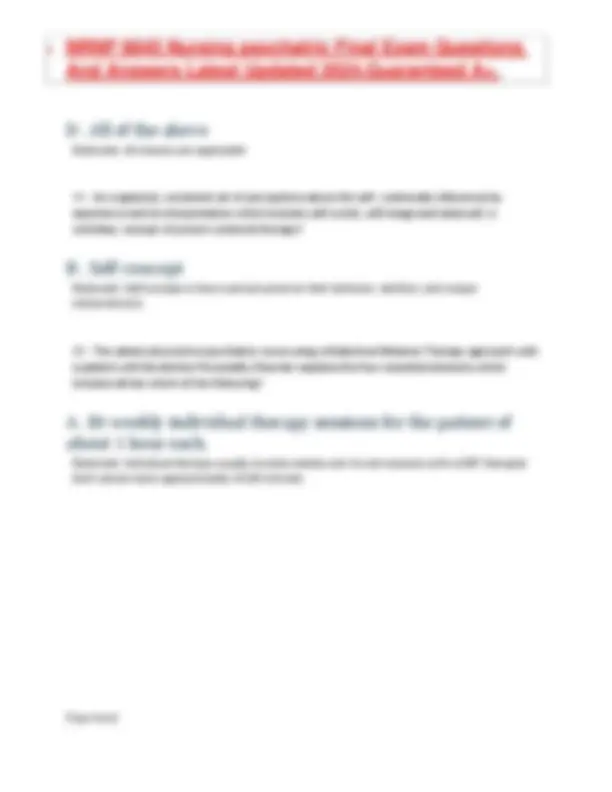
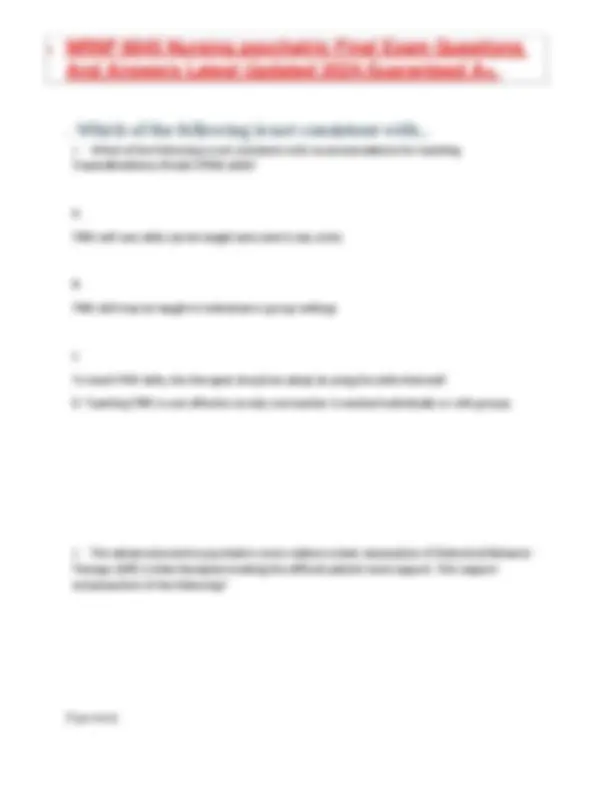
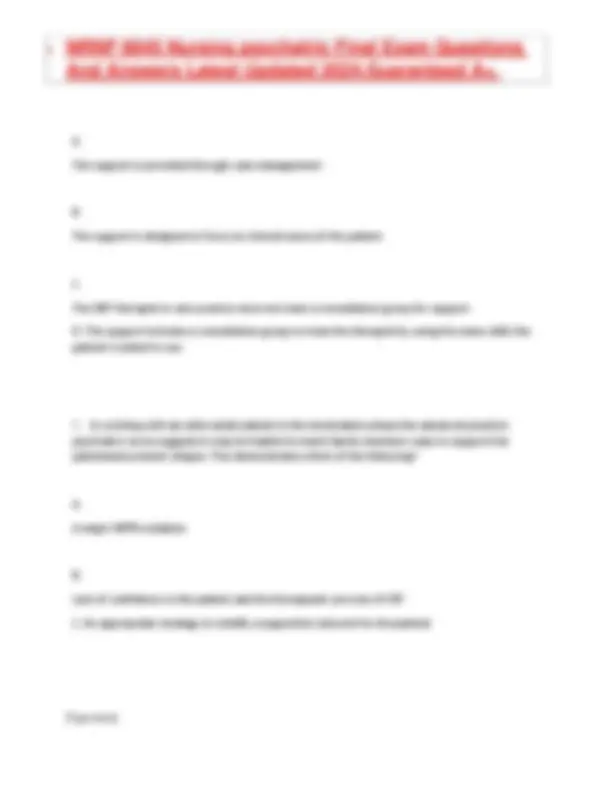
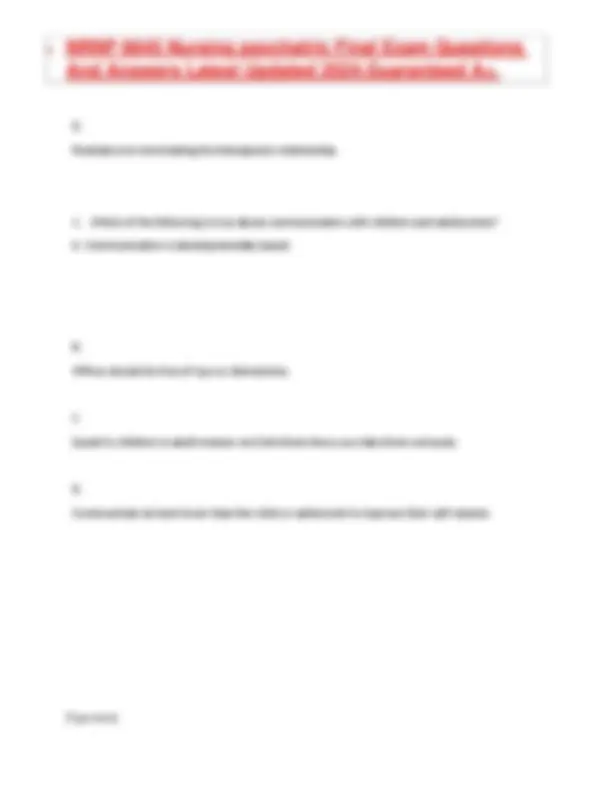
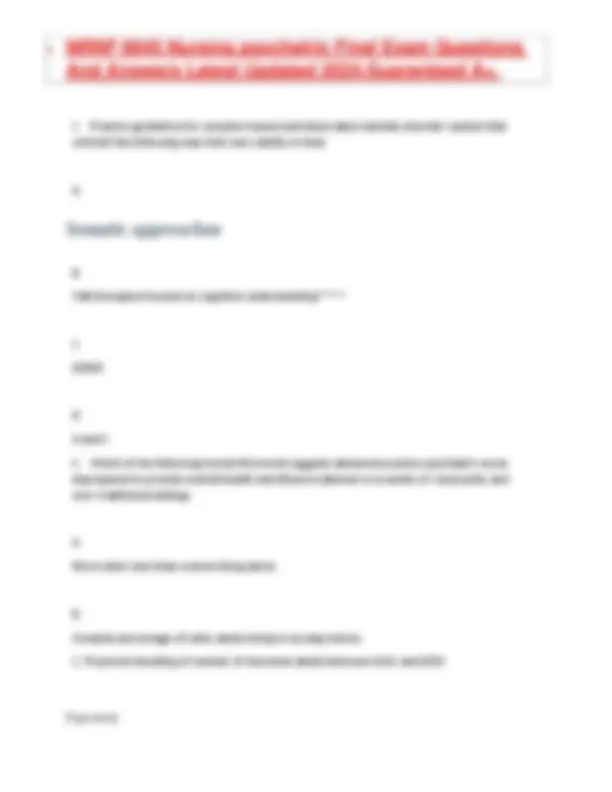
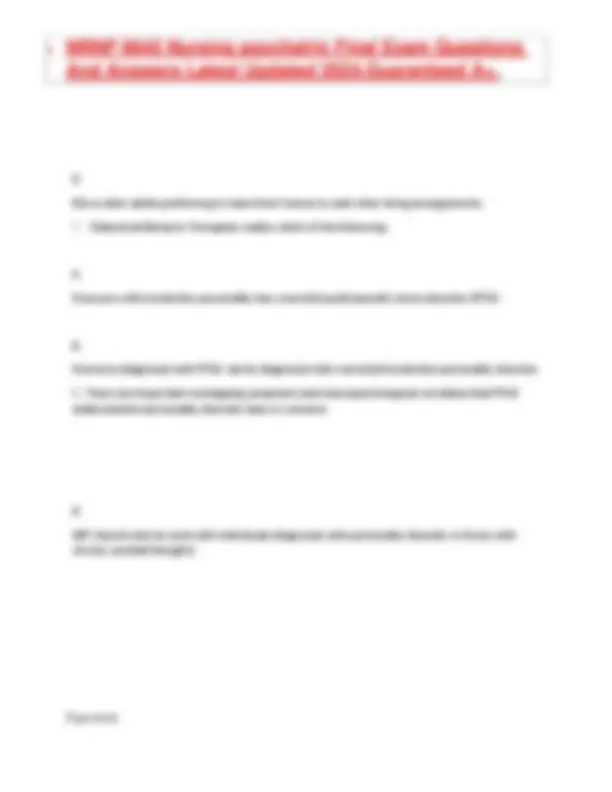
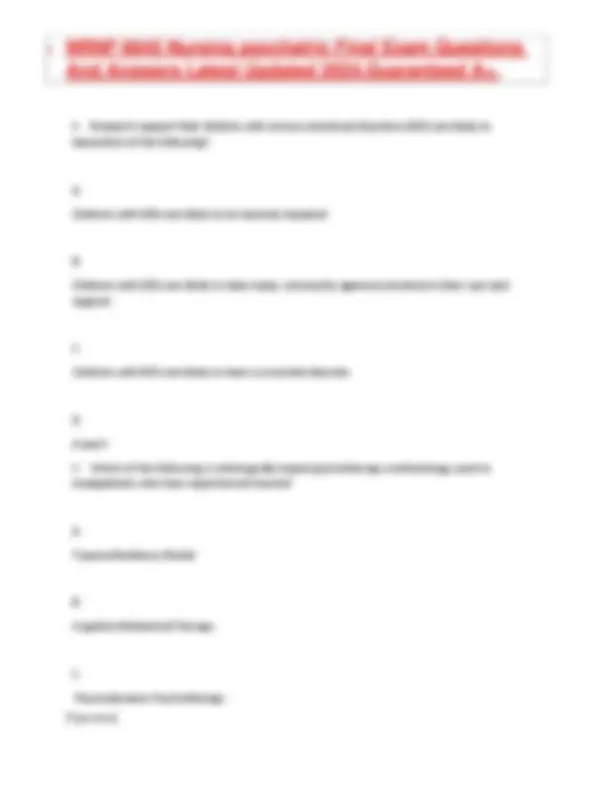
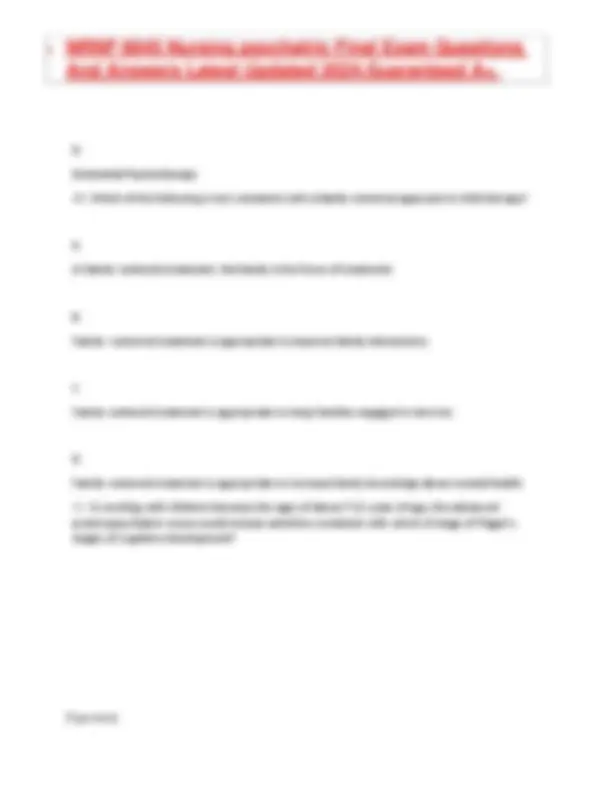
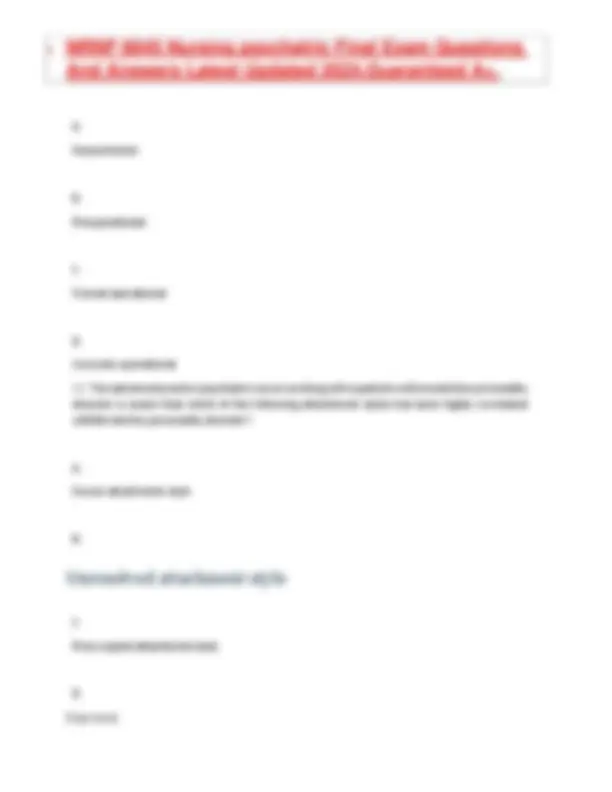
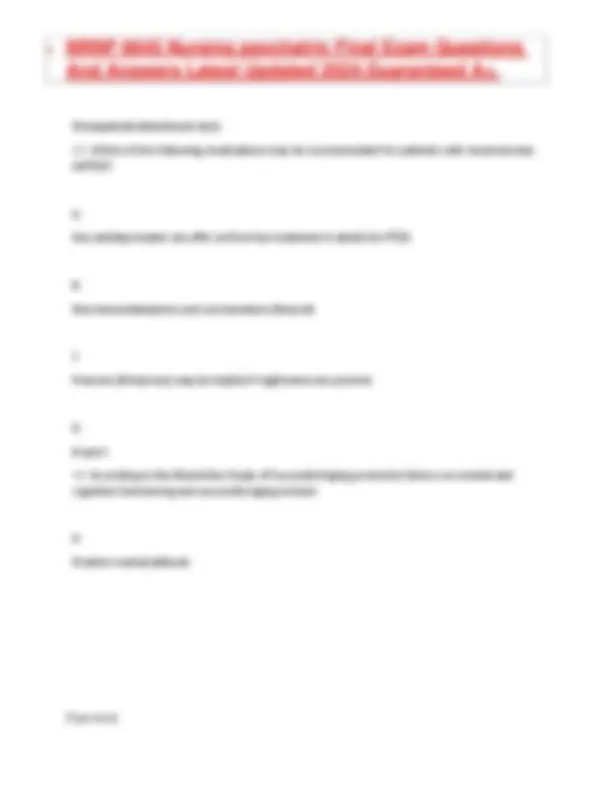
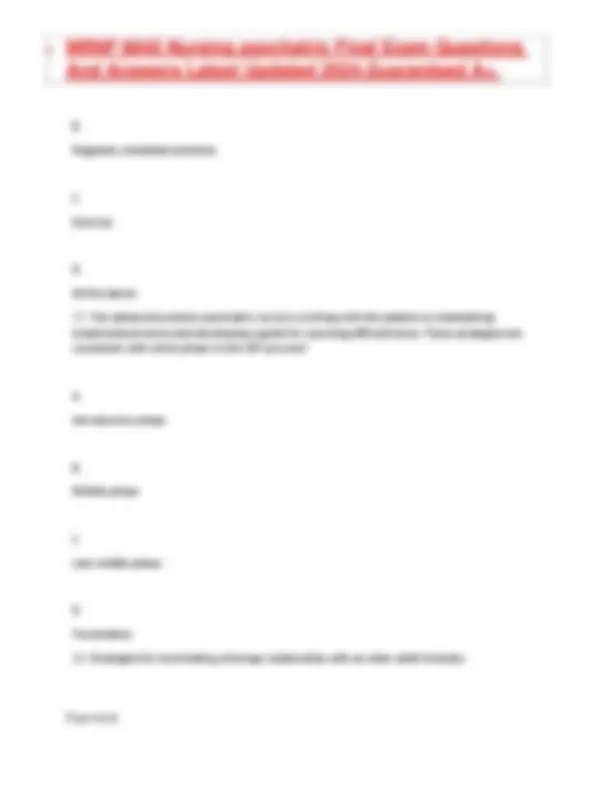
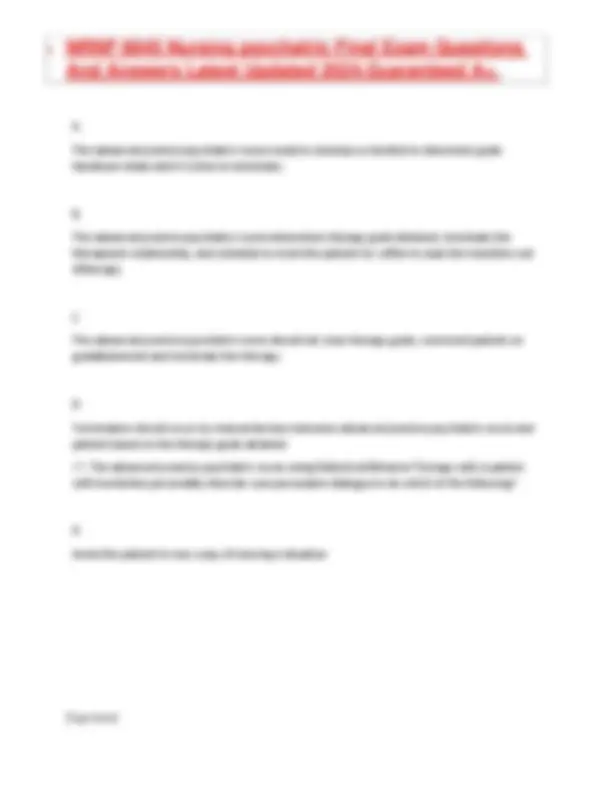
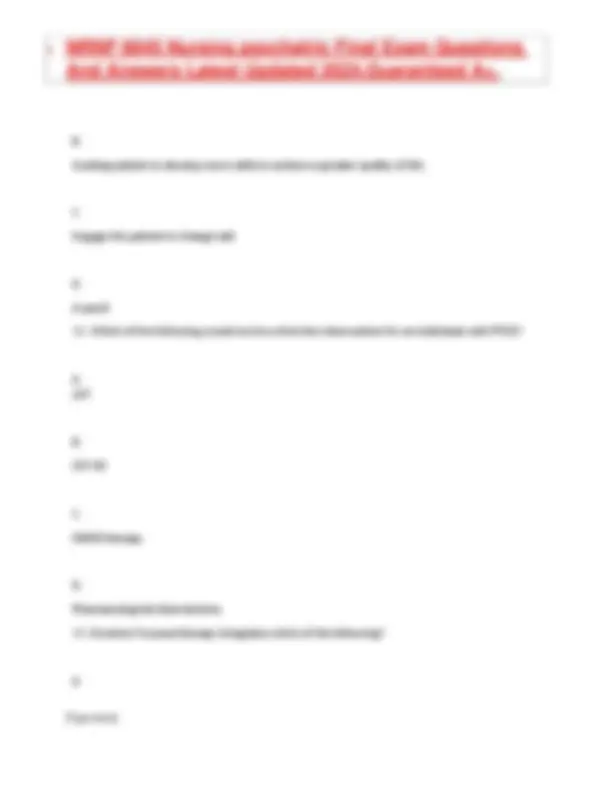
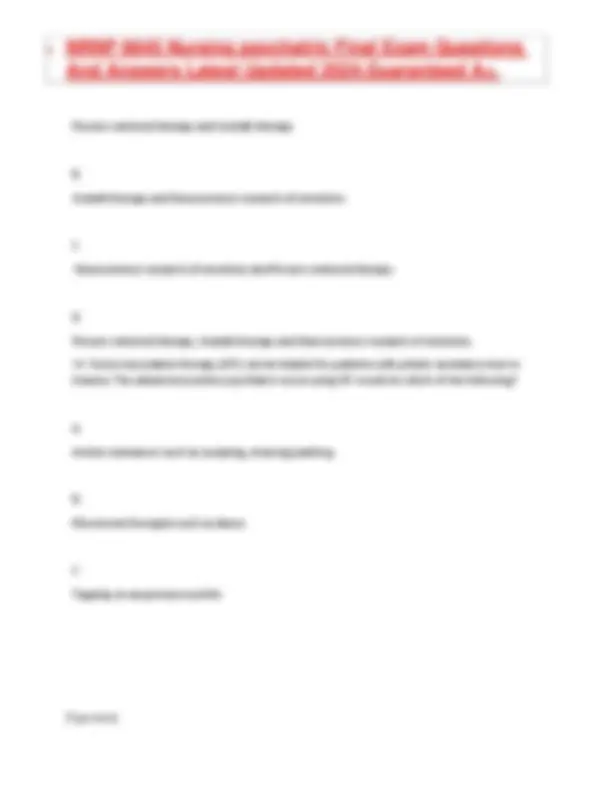
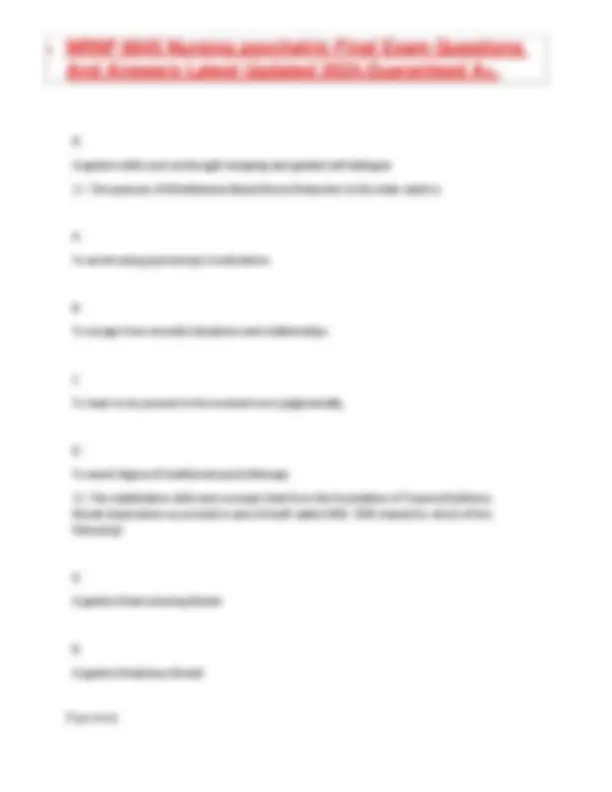
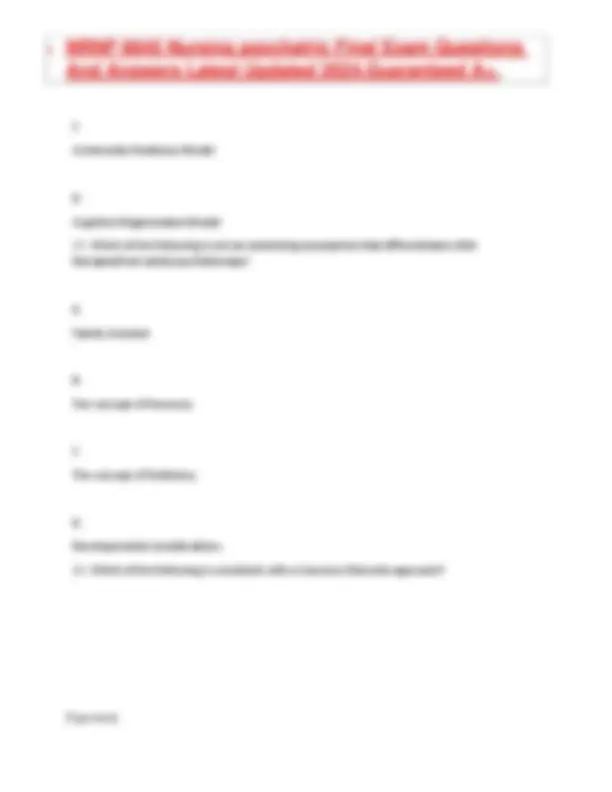
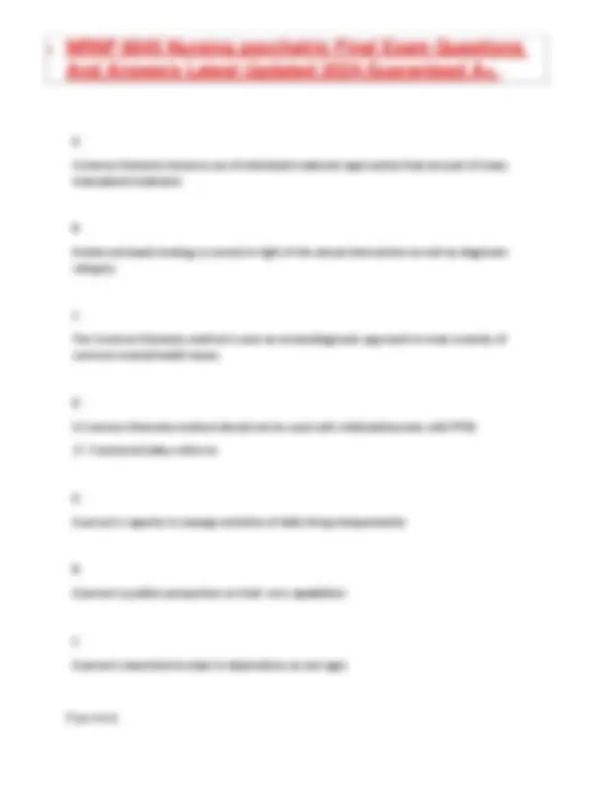
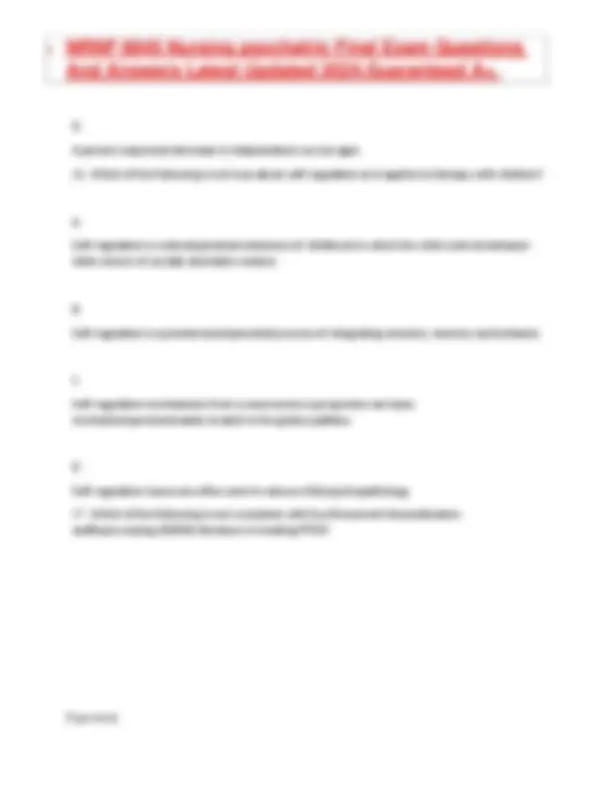
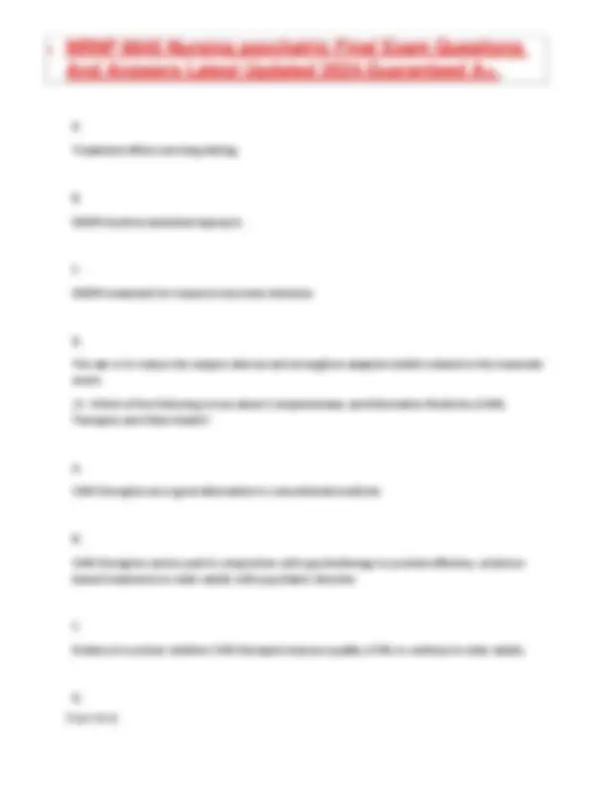
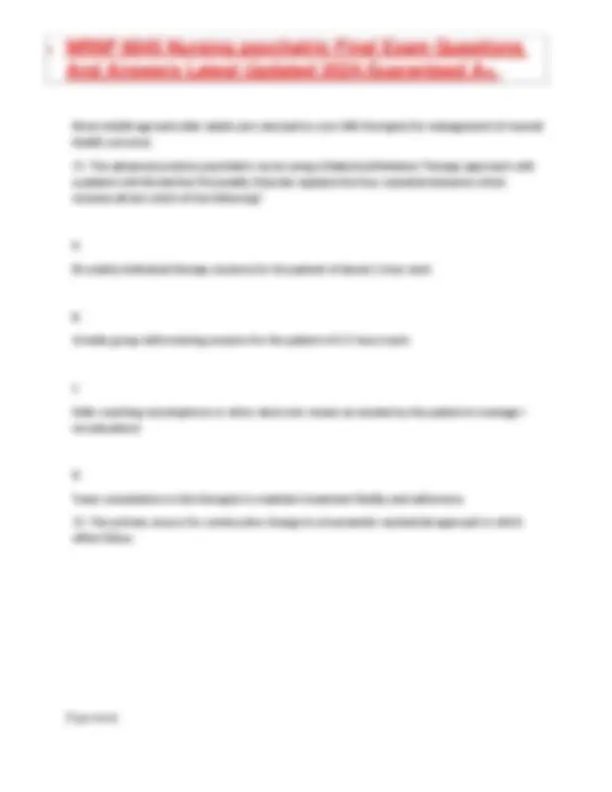
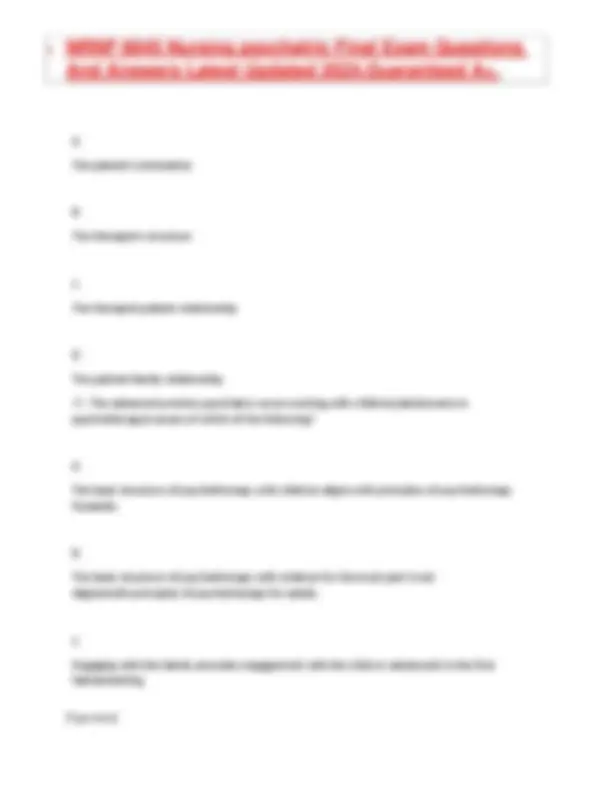
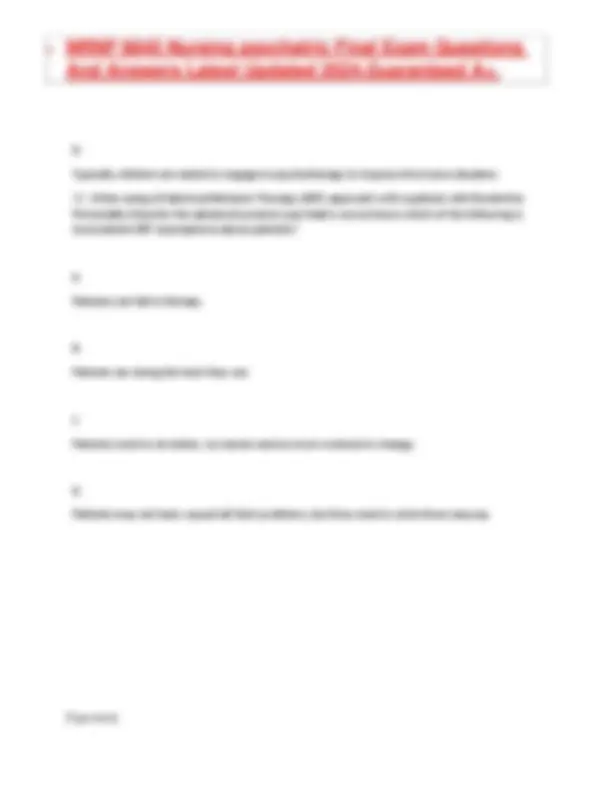
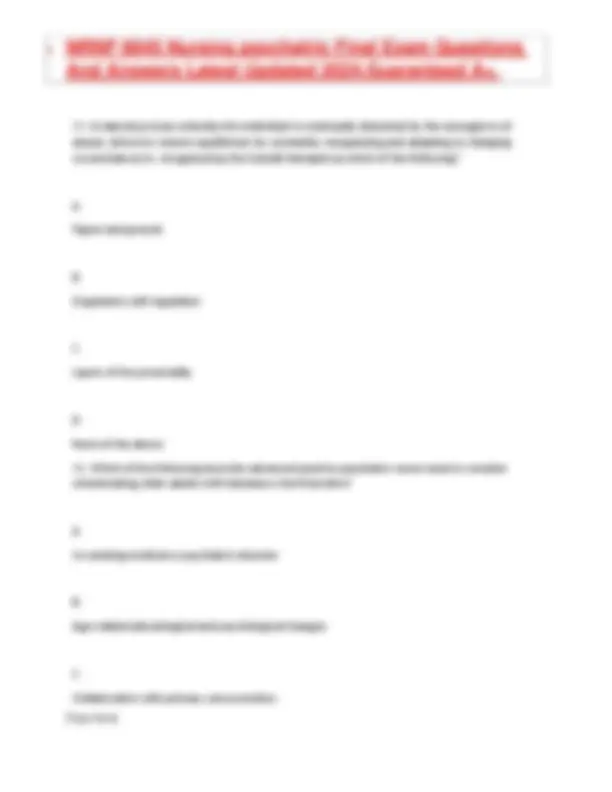
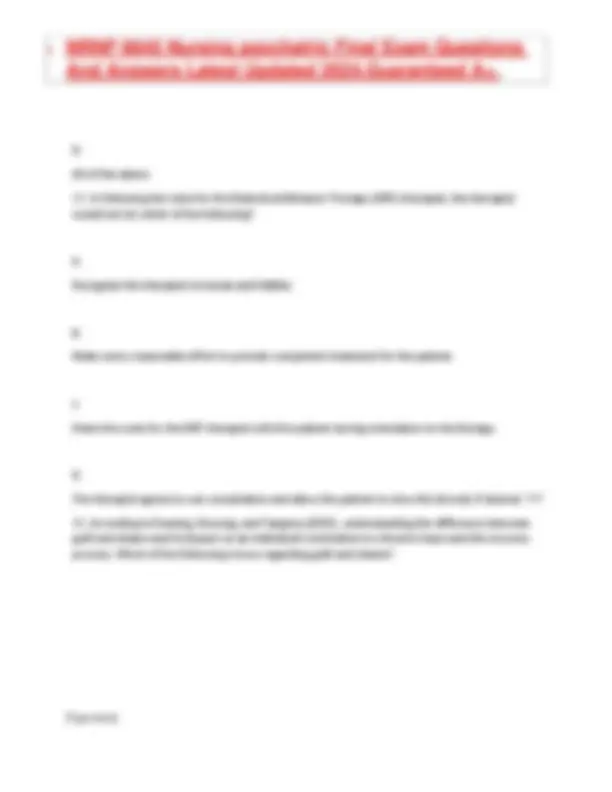
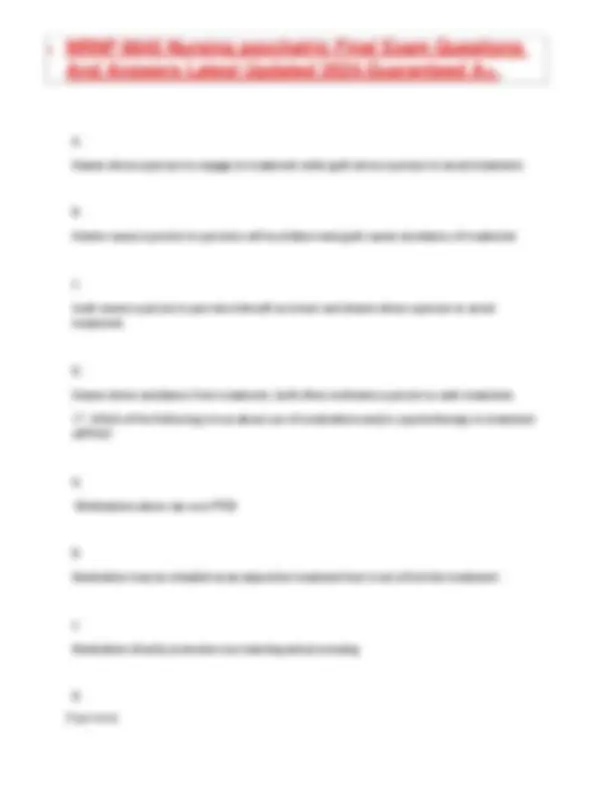
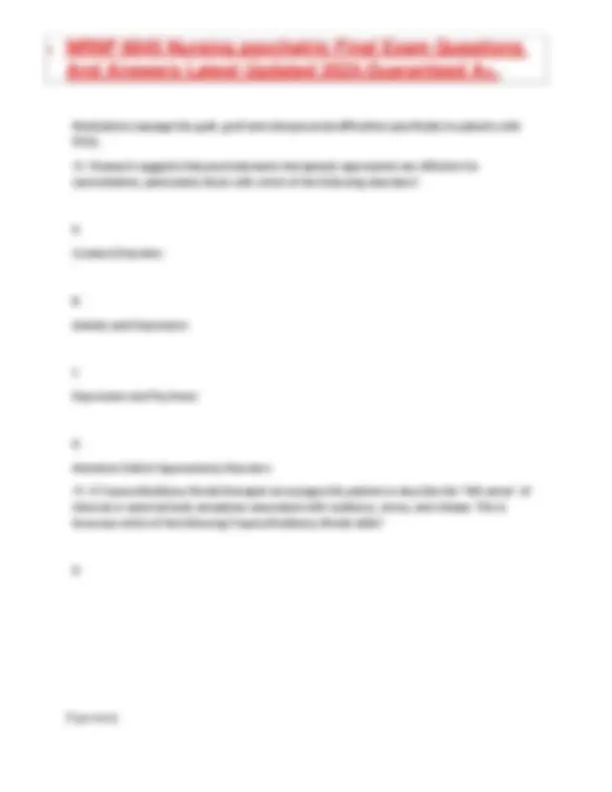
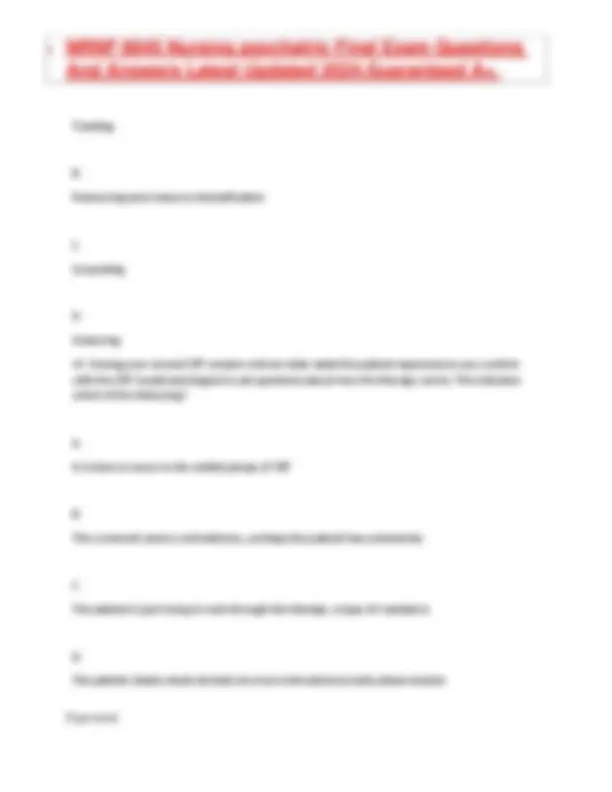
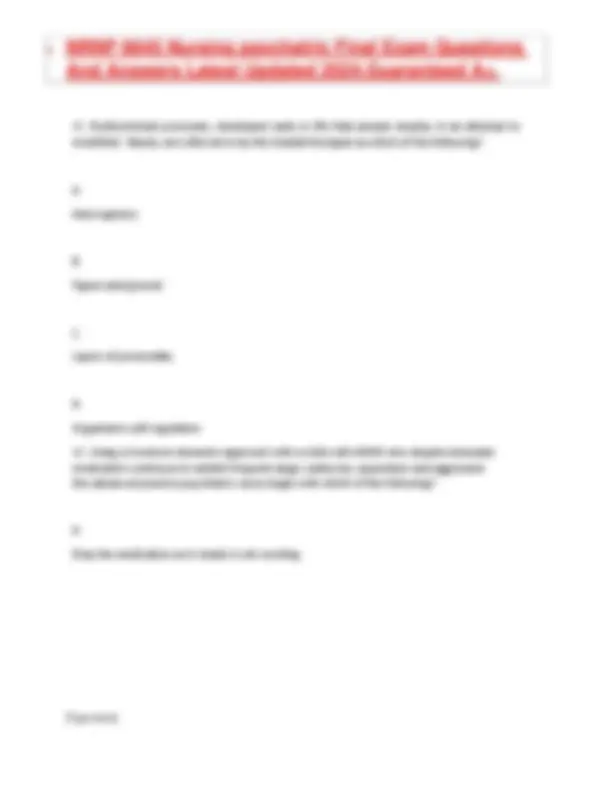
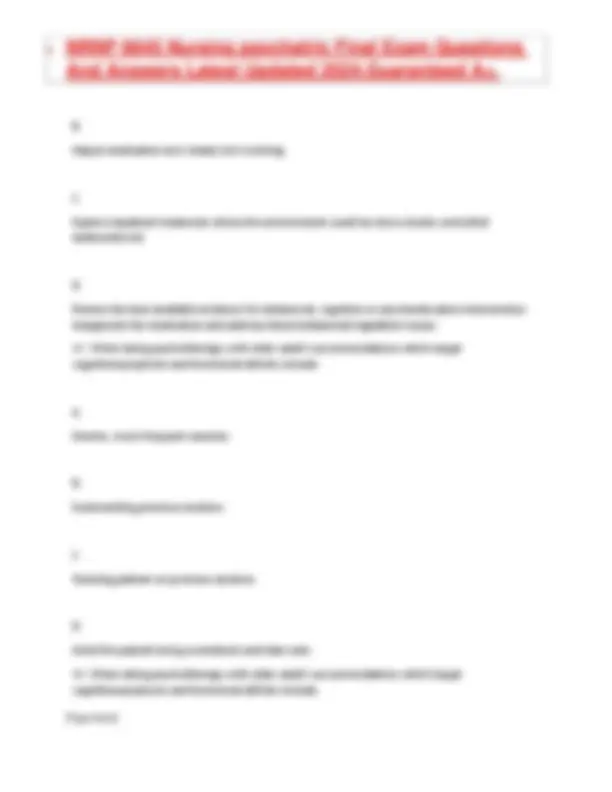
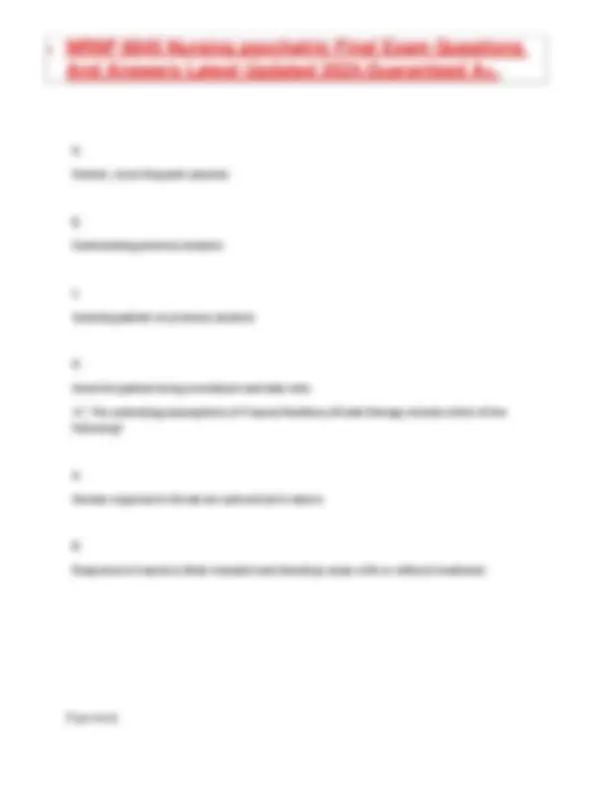
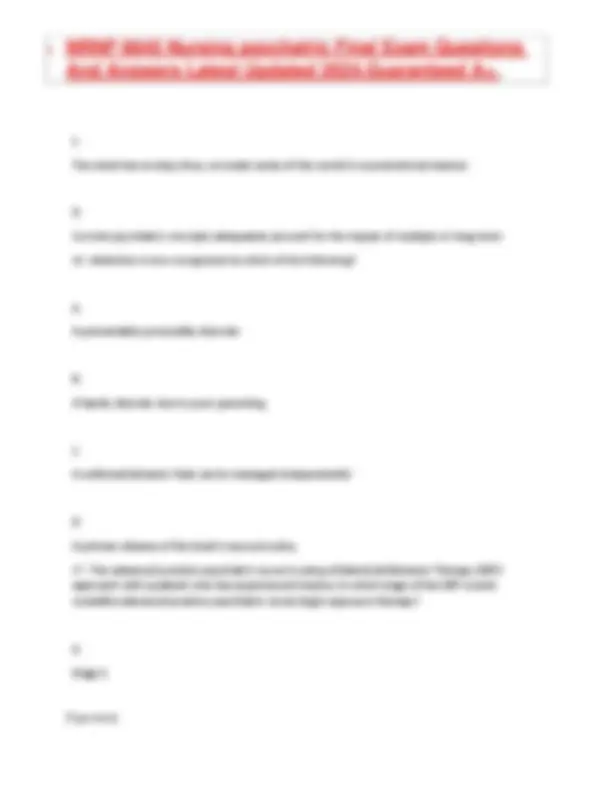
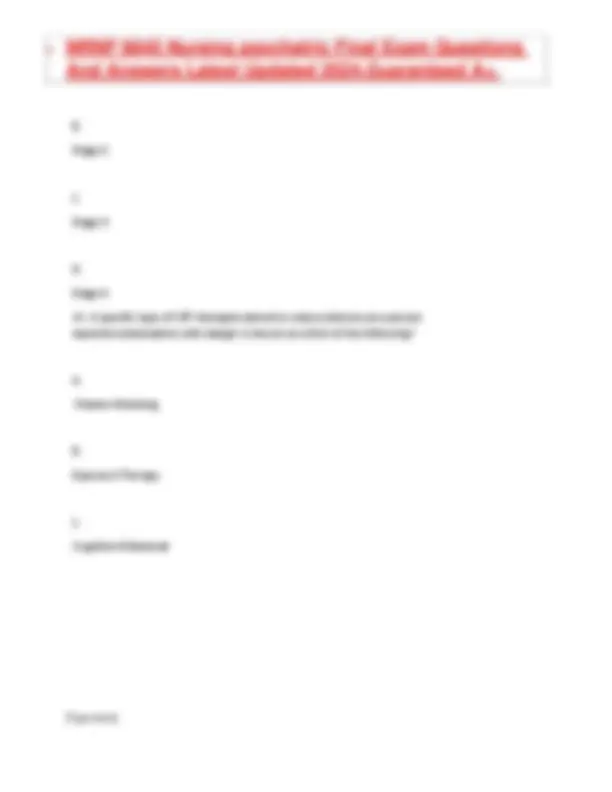
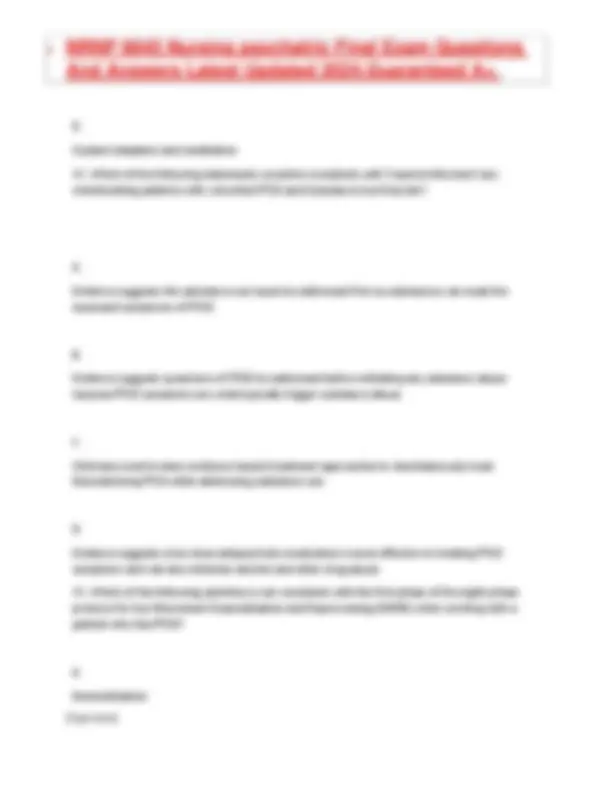
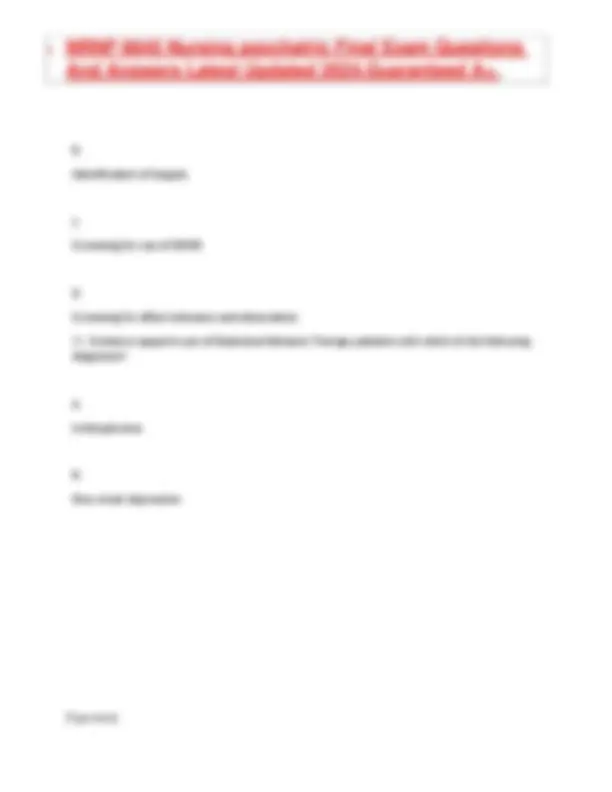
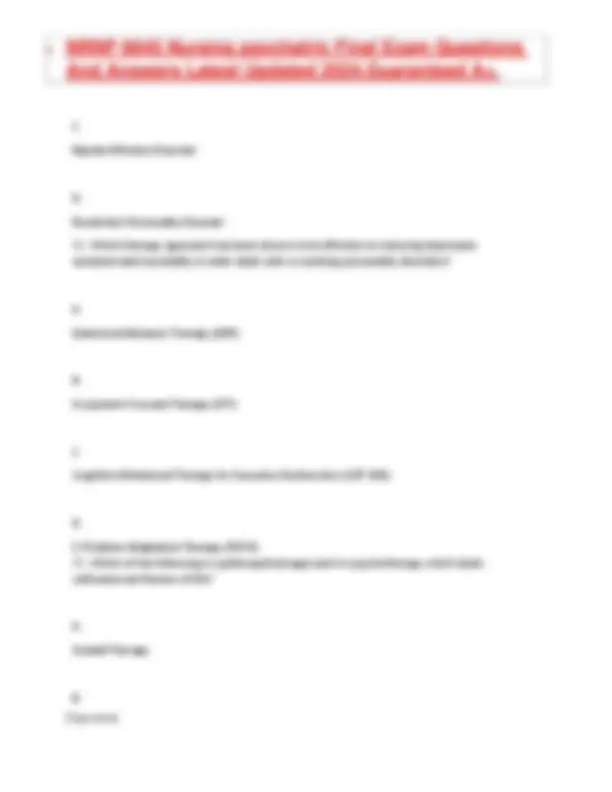
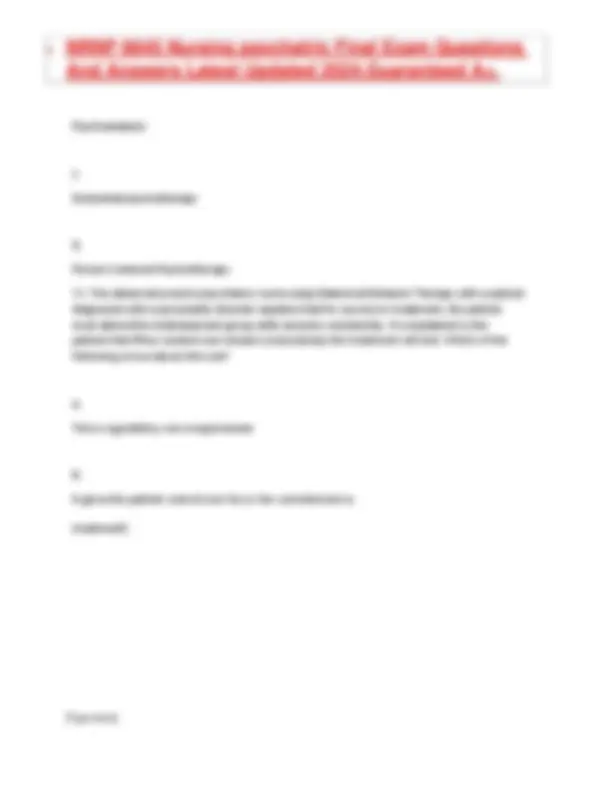
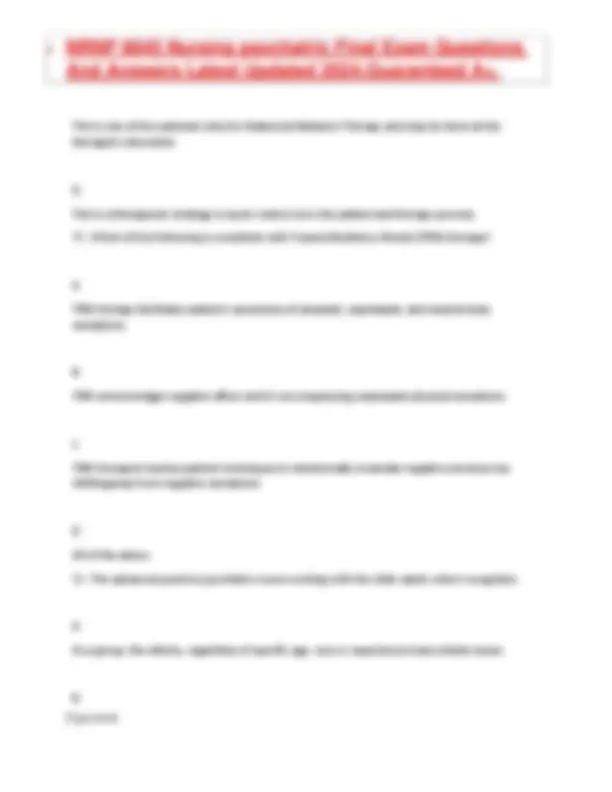
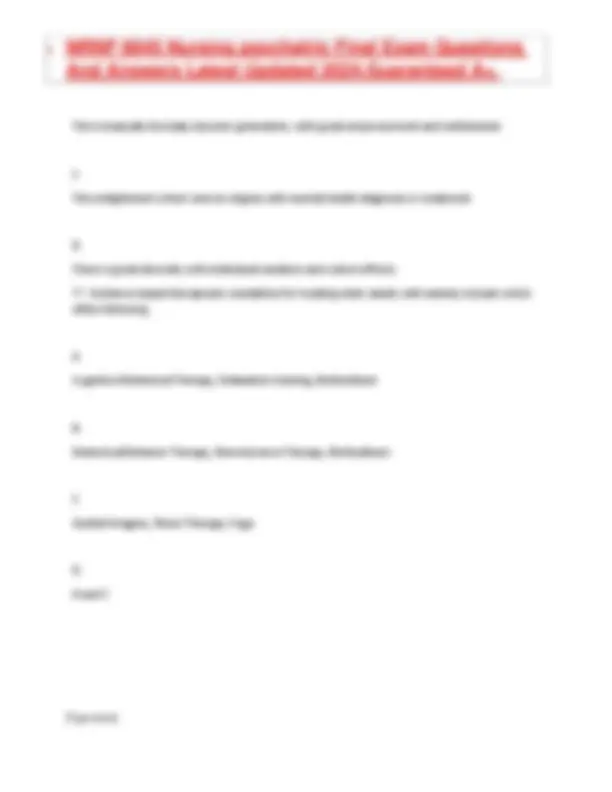
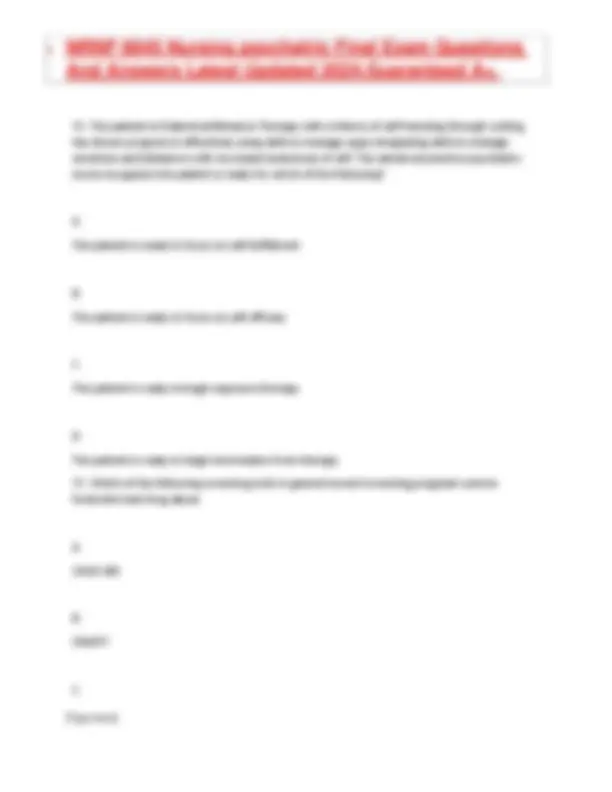
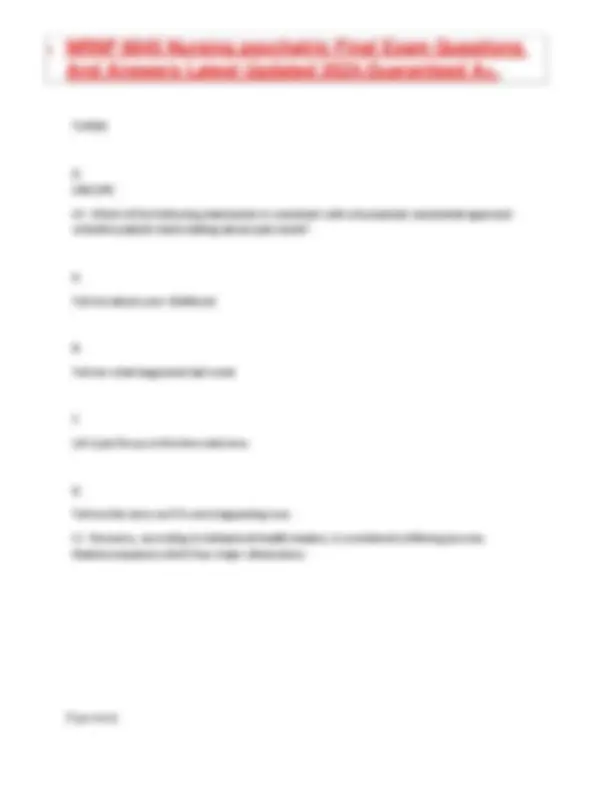
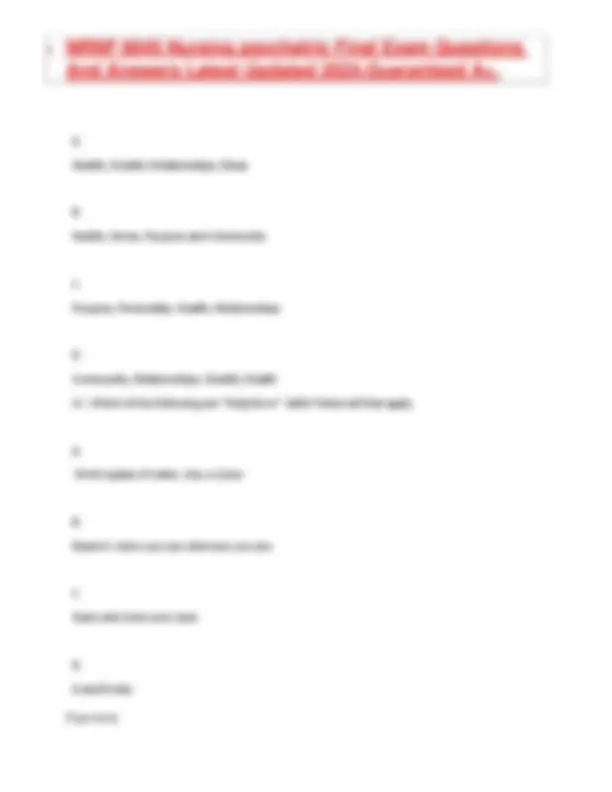
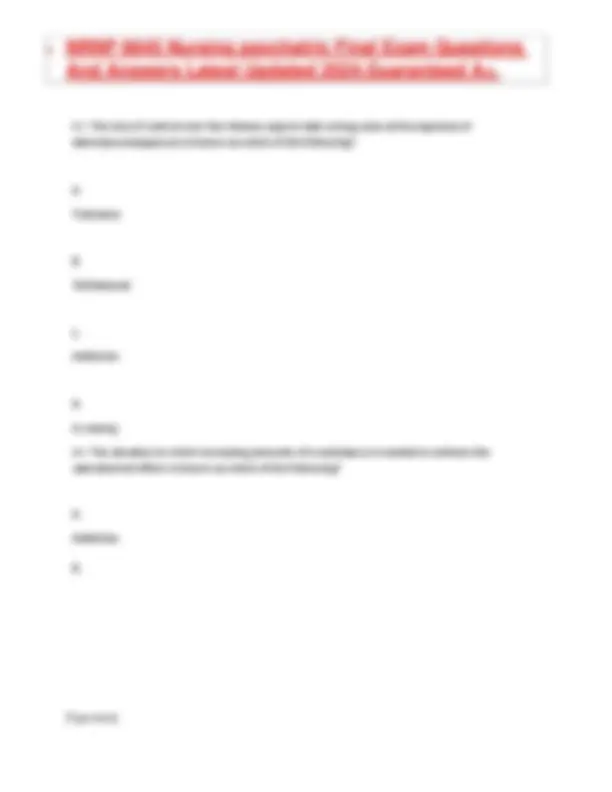
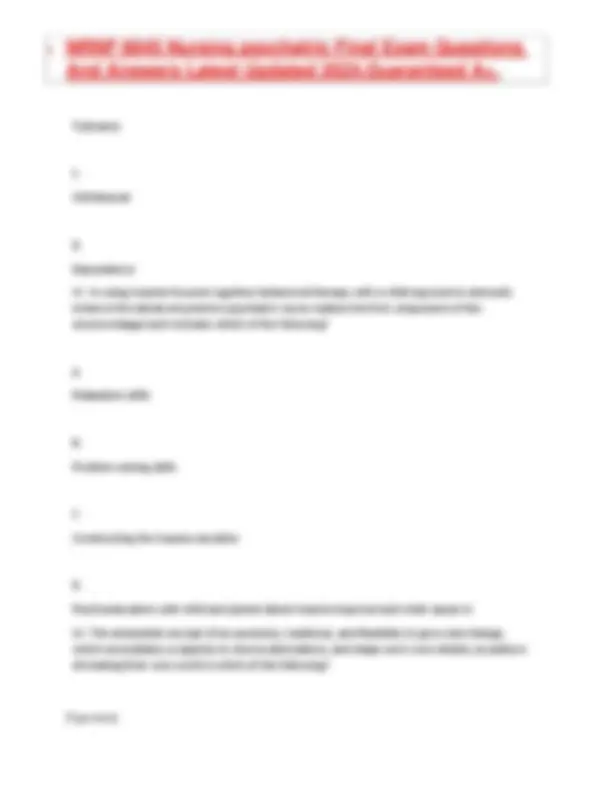
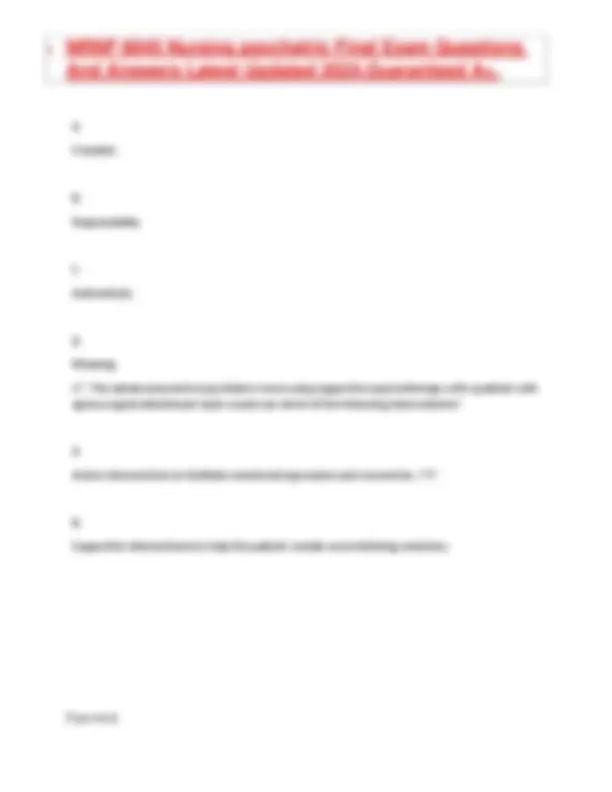
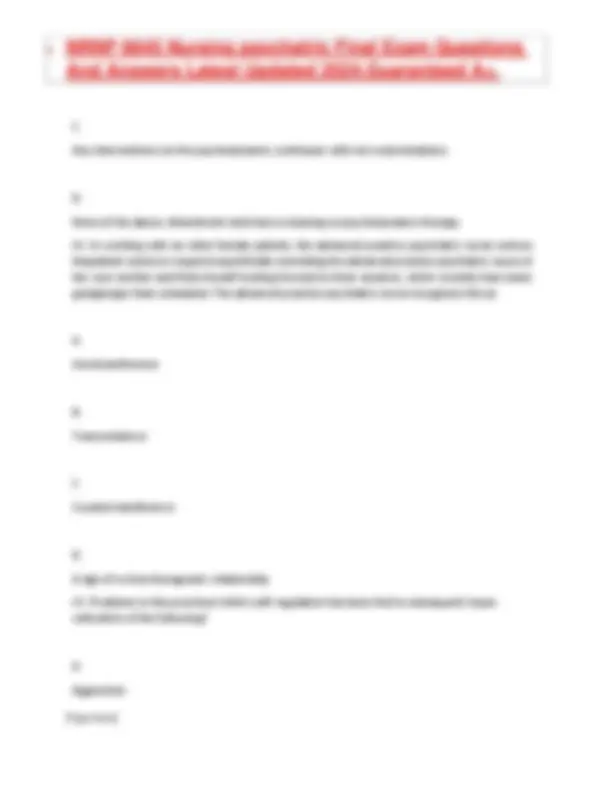
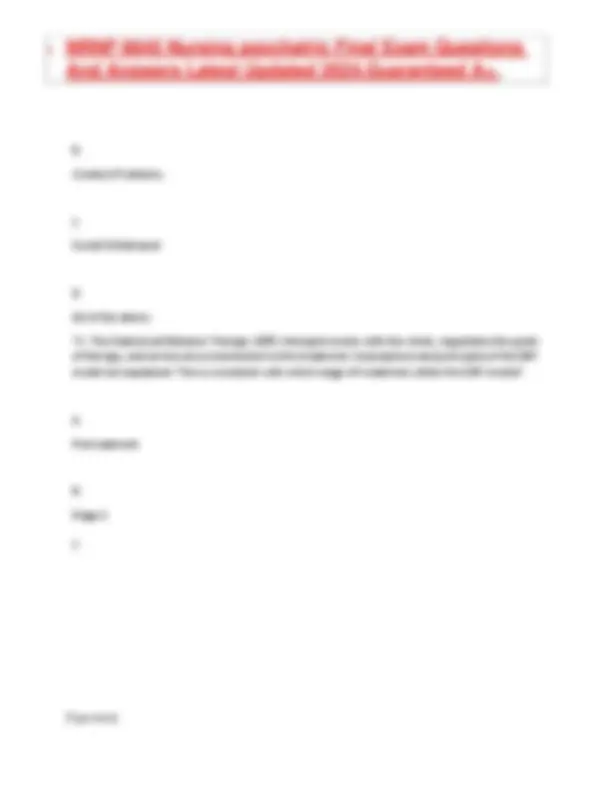
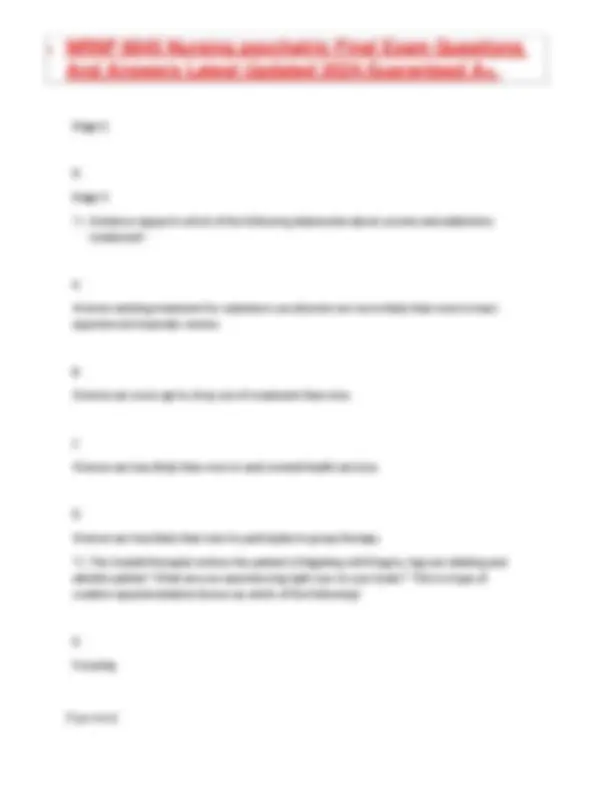
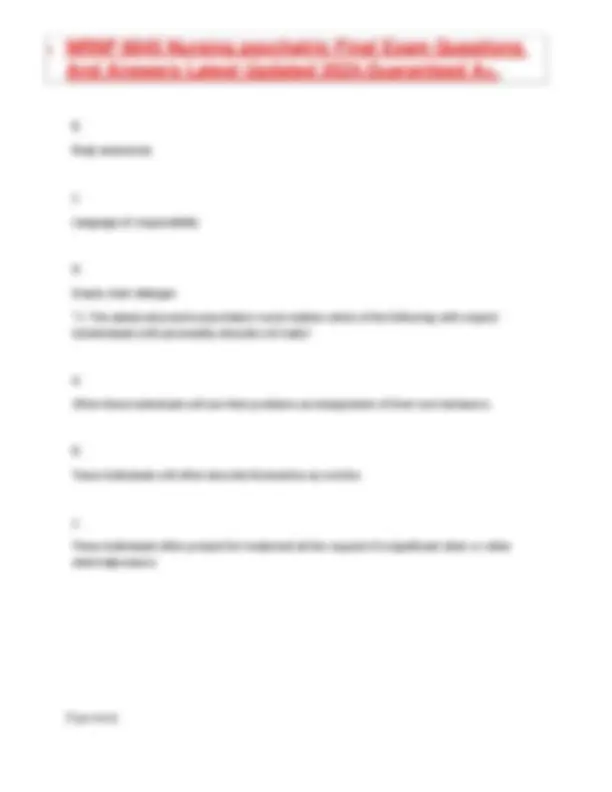
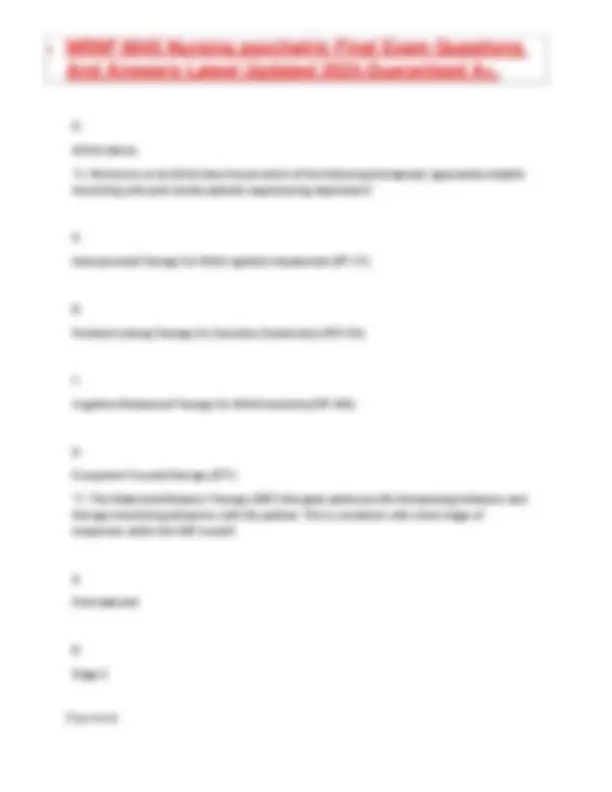
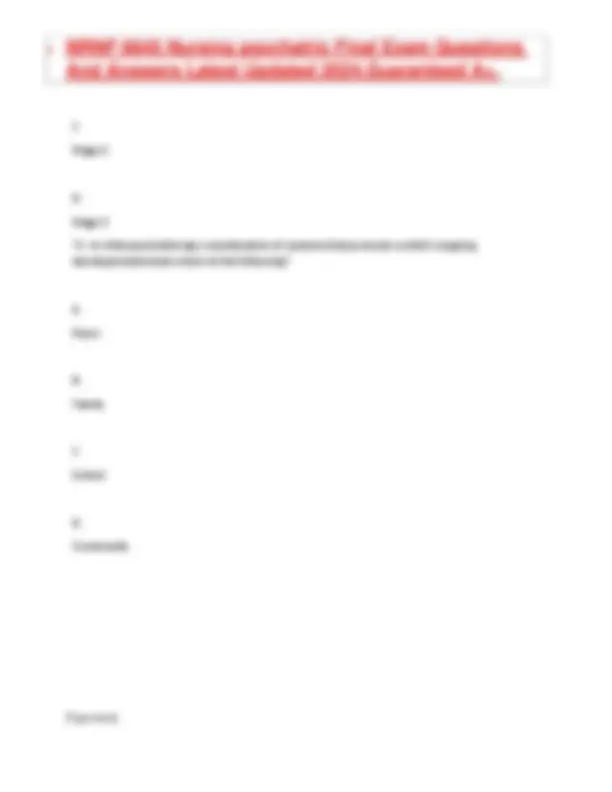
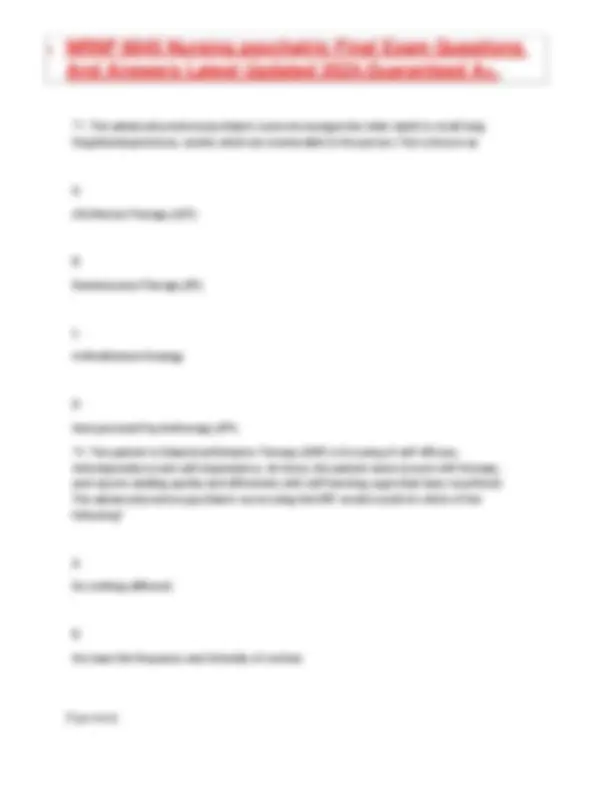
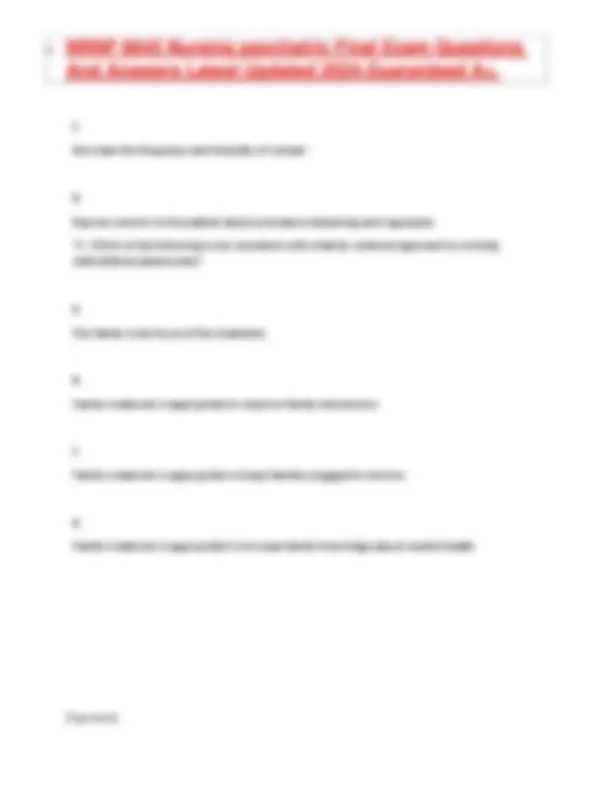
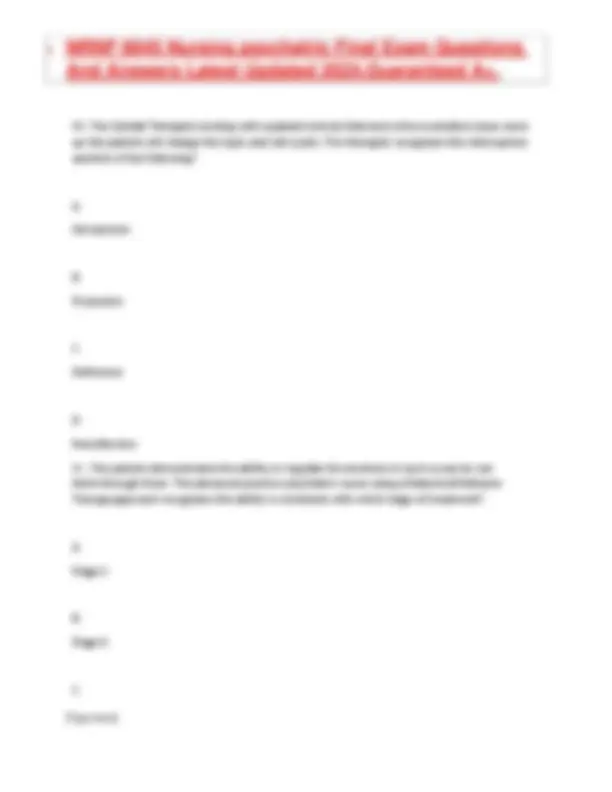
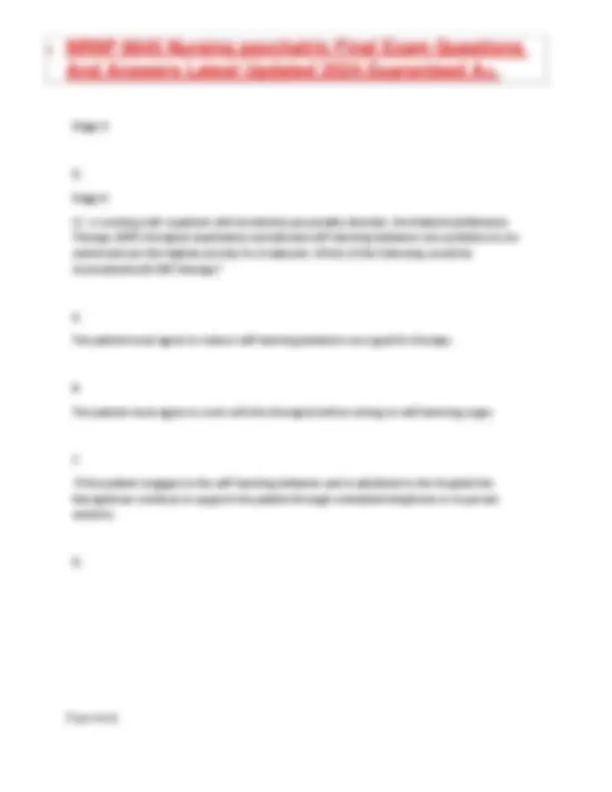
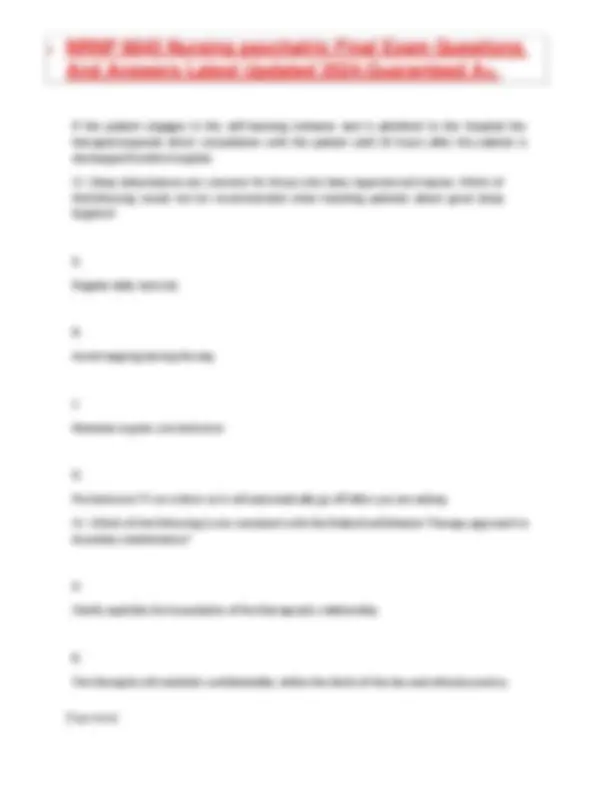
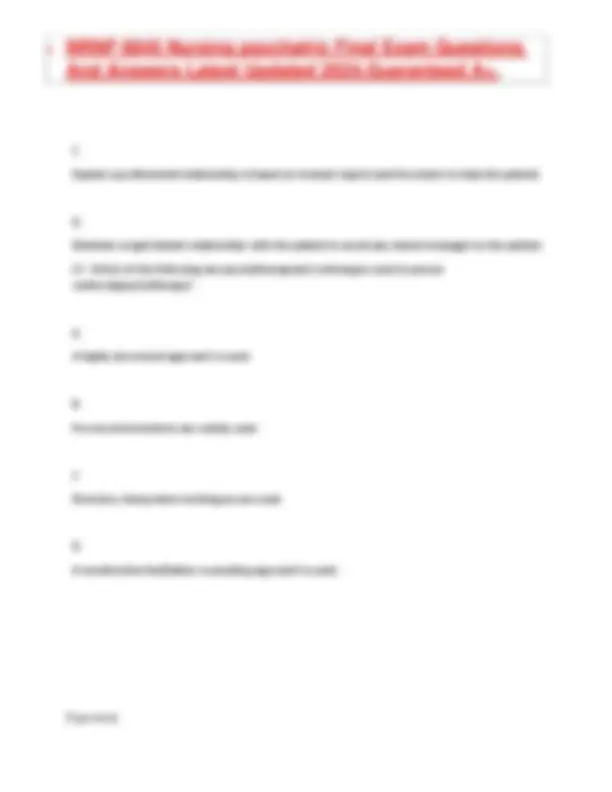
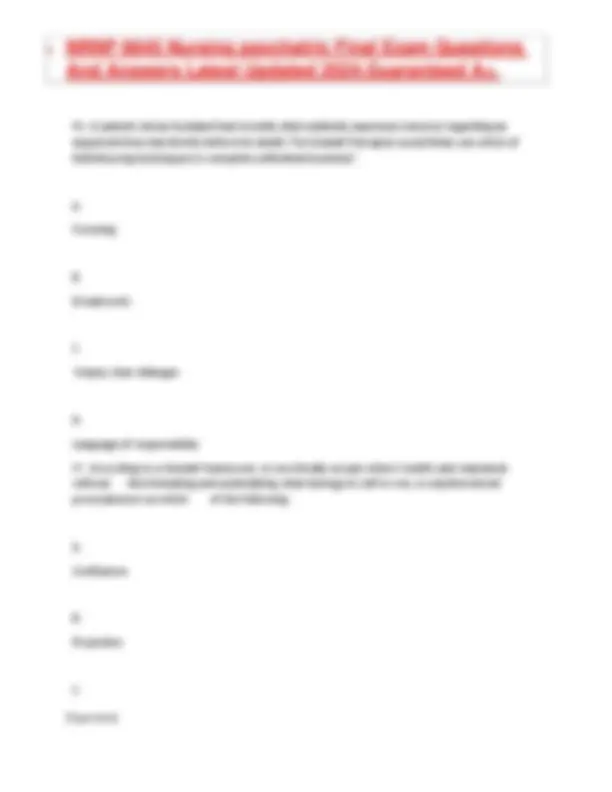
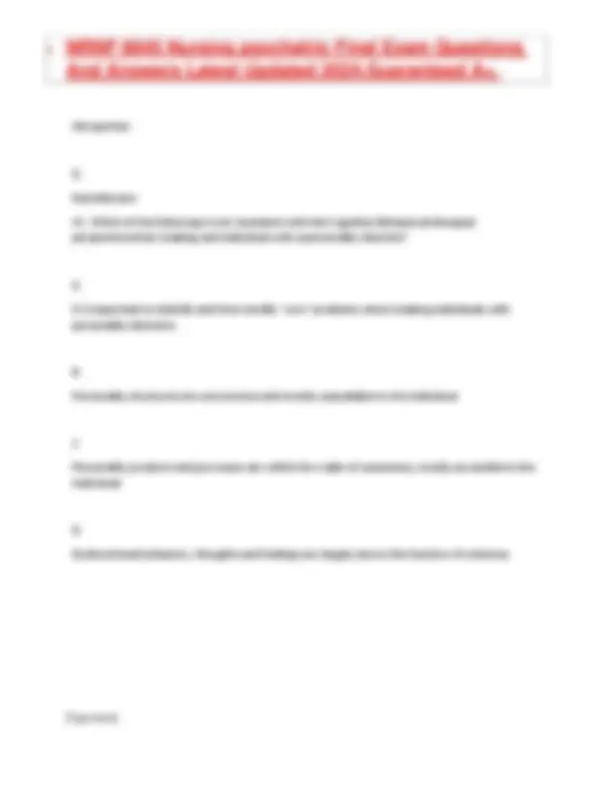
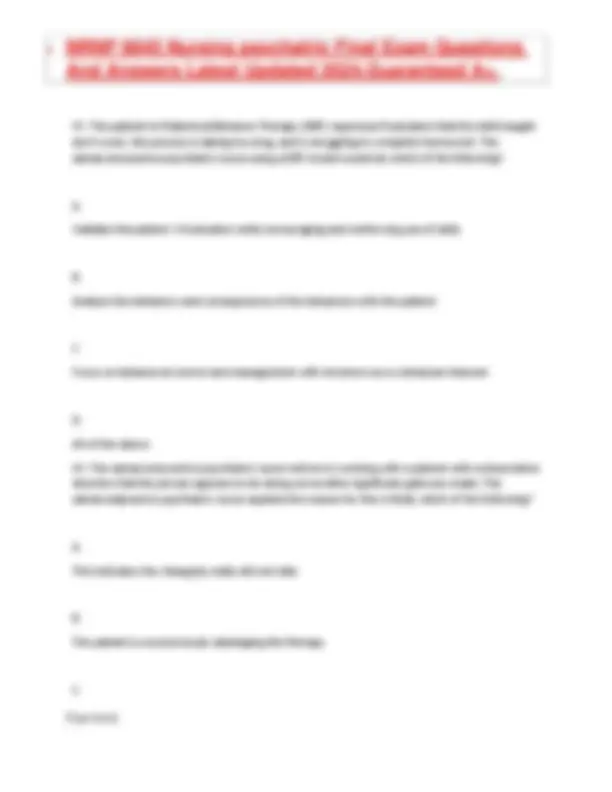
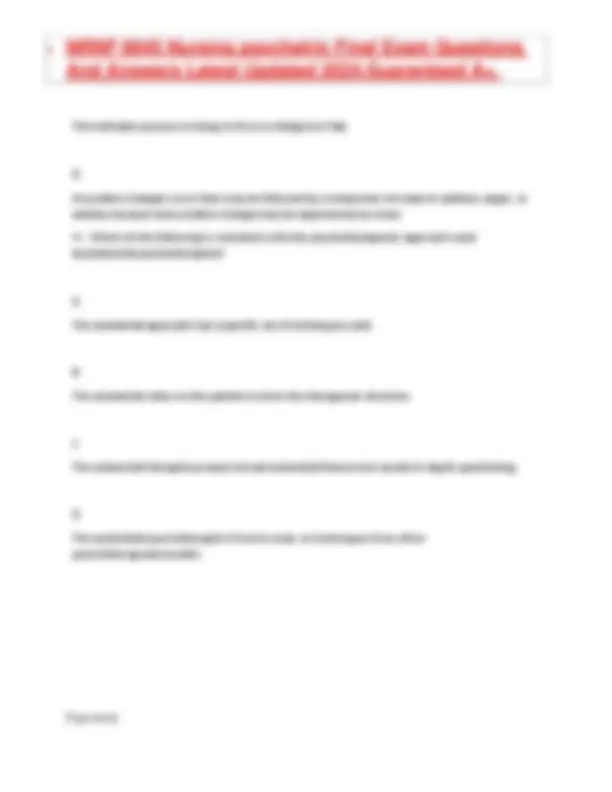
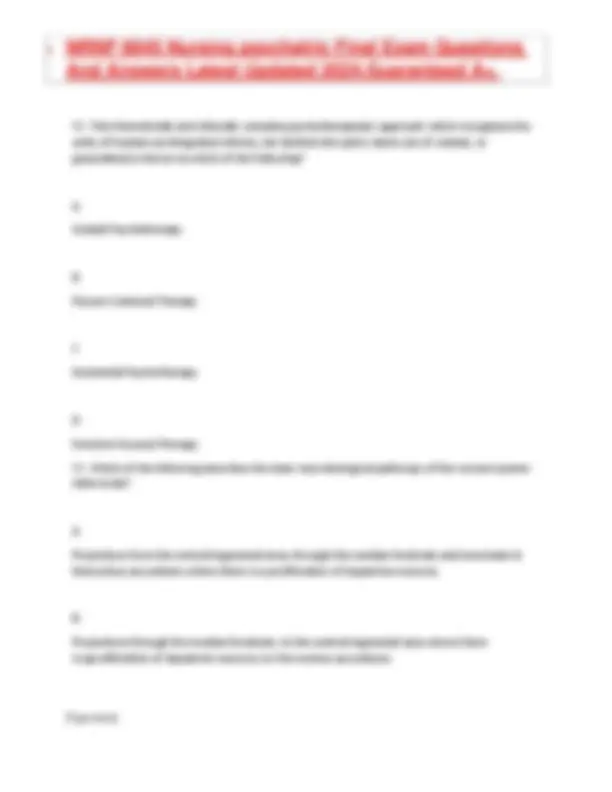


Study with the several resources on Docsity

Earn points by helping other students or get them with a premium plan


Prepare for your exams
Study with the several resources on Docsity

Earn points to download
Earn points by helping other students or get them with a premium plan
Community
Ask the community for help and clear up your study doubts
Discover the best universities in your country according to Docsity users
Free resources
Download our free guides on studying techniques, anxiety management strategies, and thesis advice from Docsity tutors
A series of questions and answers related to psychiatric nursing, covering topics such as relapse prevention, guilt and shame, psychotherapeutic approaches, substance abuse treatment, trauma and dissociative identity disorder, Dialectical Behavior Therapy, psychodynamic therapeutic approaches, and more. The questions are designed to test the knowledge of advanced practice psychiatric nurses and provide insights into effective treatment for addiction and mental health disorders.
Typology: Exams
1 / 169

This page cannot be seen from the preview
Don't miss anything!





























































































The advanced practice psychiatric nurse encourages a patient with gambling addiction to develop a relapse prevention plan. Which of the following is true about a relapse prevention plan?
Which of the following is consistent with the psychotherapeutic approach used by existential psychotherapists?
According to Dearing, Stuewig, and Tangney (2005), understanding the difference between
guilt and shame and its impact on an individual’s motivation is critical to hope and the recovery process. Which of the following is true regarding guilt and shame?
Which of the following is not consistent with what is known about relapse?
The advanced practice psychiatric nurse proficient in Interpersonal Psychotherapy (IPT) is
working with an older adult who does not realize she has depression. Which of the following is true?
The existential concept of an openness, readiness, and flexibility to grow and change, which
necessitates a capacity to choose alternatives, and shape one’s own destiny as authors of creating their own world is which of the following?
Which of the following is not consistent with a family-centered approach in child therapy?
The Gestalt therapist notices the patient is fidgeting with fingers, legs are shaking and asks
the patient “What are you experiencing right now in your body?” This is a type of creative experimentation known as which of the following?
Stigma of mental illness in the elderly:
physical symptoms.
The advanced practice psychiatric nurse encourages the older adult to recall long forgotten experiences, events which are memorable to the person. This is known as
The advanced practice psychiatric nurse is working with a patient who states she believes her boss hates her. After some discussion, it is clear the patient has strong negative feelings towards her boss. The advanced practice psychiatric nurse working within a Gestalt framework, recognizes this as an interruption consistent with which of the following?
Positive substance use disorder treatment out-comes unique to women can be strengthened
by which of the following.
A specific type of CBT therapies aimed to reduce distress as a person experiences sensation
with danger is known as which of the following?
Which of the following are “Help Now!” skills? Select all that apply.
Practice guidelines for complex trauma and dissociative identity disorder caution that which of the following may limit one’s ability to heal.
When using a Dialectical Behavior Therapy (DBT) approach with a patient with Borderline
Personality Disorder the advanced practice psychiatric nurse knows which of the following is inconsistent DBT assumptions about patients?
The patient in Dialectical Behavior Therapy with a history of self-harming through cutting,
has shown progress in effectively using skills to manage urges integrating skills to manage emotions and behaviors with increased awareness of self. The advanced practice psychiatric nurse recognizes the patient is ready for which of the following?
Strategies for terminating a therapy relationship with an older adult includes:
Strategies for terminating a therapy relationship with an older adult includes:
The person-centered therapist is expected to exhibit which of the following characteristics?
The patient demonstrates the ability to regulate his emotions in such a way he can think
through them. The advanced practice psychiatric nurse using a Dialectical Behavior Therapy approach recognizes this ability is consistent with which stage of treatment?
Which of the following is not consistent with the Principles of Effective Treatment for
Addiction according to the NIH?
A patient whose husband had recently died suddenly expresses remorse regarding an
argument they had shortly before his death. The Gestalt Therapist would likely use which of the following techniques to complete unfinished business?
Evidence supports use of Dialectical Behavior Therapy patients with which of the following
diagnoses?
Problems in the preschool child’s self-regulation has been tied to subsequent issues with
which of the following?
Which of the following would not be a first-line intervention for an individual with PTSD?